Media, Culture, and Communication (PhD)
Program description, career opportunities.
The PhD program in Media, Culture, and Communication is committed to interdisciplinary, theoretically sophisticated, multi-methodological, historical, and comparative approaches to the study of media and culture. Five research areas operate as guiding frameworks for intellectual inquiry across the department: Global Communication and Media, Technology and Society, Visual Culture and Sound Studies, Media Industries and Politics, Interaction and Experience. Students attend special events throughout the year and can apply to present their original research at the department’s annual Neil Postman Graduate Conference.
Doctoral student work is shaped by the program's commitment to:
- Engaging with theoretical concepts from a range of disciplines—media and cultural studies, visual culture, history, science and technology studies, anthropology, sociology, disability studies, sound studies, political science.
- A multi-methodological approach to research—from semiotics, global ethnography, gender and queer theory, critical race theory, qualitative and quantitative discourse analysis, to political/cultural economy, among other critical frameworks.
- A global perspective—conceiving of the global mediascape as transnational and transcultural.
- Recognizing media and technology’s long history and antecedents.
Graduates of the PhD program join academic departments of media and communication, with placement in the social sciences and interdisciplinary humanities becoming increasingly common. MCC PhDs who graduated in the past ten years are now tenure-track or tenured professors at the University of California, Berkeley; University of Washington, Seattle; Cornell University; Stanford University; UCLA; Rutgers; Fordham; University of Michigan; George Mason University; University of North Carolina; University of Arizona; College of Charleston; Memorial University of Newfoundland; University of San Francisco; Scripps; Pratt; University of Maryland; American University of Beirut; American University of Paris; Ryerson University; Trent University; St. Joseph’s College.
Over the past decade, PhD graduates have received numerous prestigious postdocs, including a Mellon Postdoctoral Fellowship in the Humanities in the Department of Comparative Media Studies/Writing at MIT; Mellon Postdoctoral Fellowship at MIT's Center for Art, Science, and Technology; Postdoctoral Fellow, Berkman Klein Center, Harvard University; Postdoctoral Researcher, Max Planck Institute for the History of Science; Postdoctoral, Center for Information Technology Policy, Princeton University; Postdoctoral Fellowship at Rice University in Technology, Culture, and Society; Research Associate, Center for Digital Humanities, Princeton University; Postdoctoral Fellow, Media, Inequality & Change Center, University of Pennsylvania.
Admission to graduate programs in the Steinhardt School of Culture, Education, and Human Development requires the following minimum components:
- Statement of Purpose
- Letters of Recommendation
- Transcripts
- Proficiency in English
See NYU Steinhardt's Graduate Admissions website for additional information on school-wide admission. Some programs may require additional components for admissions.

Program Requirements
The PhD program requires 48 credits of coursework for students with a master’s degree; 54 credits are required for those admitted only with a bachelor’s degree. Core courses must be taken in sequence:
Courses are taken by advisement, including specialized elective courses inside the department (8–10 credits); research and methods electives inside or outside the department (14–16 credits); and theoretical or disciplinary foundational study outside the department (12 credits). A minimum of 12 credits from these remaining courses must be taken in the department.
Students move quickly toward pursuing their dissertation research in the third year of study, accompanied by teaching and research opportunities that will help prepare them for academic positions in the fields of media studies, cultural studies, communication, and related disciplines.
Sample Plan of Study
Following completion of the required coursework for the PhD, students are expected to maintain active status at New York University by enrolling in a research/writing course or a Maintain Matriculation ( MAINT-GE 4747 ) course. All non-course requirements must be fulfilled prior to degree conferral, although the specific timing of completion may vary from student-to-student.
Learning Outcomes
Upon successful completion of the program, graduates will:
- Display fluency in core texts and scholarly literature, contemporary theory, and key debates in media, culture, and communication.
- Display fluency in and in depth knowledge of the areas of specialization in student's field of study.
- Analyze and synthesize scholarship in a range of disciplines related to media, culture, and communication and understand the ways in which these disciplinary perspectives are integrated and transformed through interdisciplinary study.
STEM OPT Benefits for International Students
Nyu policies, steinhardt academic policies, program policies.
If you’re an international student, you may be able to work in the United States after graduation for an extended period of time. Most students studying on F-1 visas will be eligible for 12 months of Optional Practical Training (OPT) off-campus work authorization. F-1 students in this program may also be eligible for the STEM (Science, Technology, Engineering, or Mathematics) OPT extension, allowing you to extend your time in the United States to pursue degree-related work experience for a total of 36 months or 3 years. For more information on who can apply for this extension visit NYU’s Office of Global Services: STEM OPT .
University-wide policies can be found on the New York University Policy pages .
Additional academic policies can be found the Steinhardt academic policies page .
Print Options
Send Page to Printer
Print this page.
Download Page (PDF)
The PDF will include all information unique to this page.
Search this site
Journalism and communication menu, journalism and communication, communication and media studies phd program, doctoral degree in communication and media studies.
Communication and media are among the most powerful forces shaping the world today. In our Communication and Media Studies PhD program, you’ll work with some of the world’s top media and communication experts to research and contribute to this crucial field. Our school is one of the nation’s oldest accredited schools of journalism and communication, housed within an Association of American Universities R1 research institution.
Request Info
How to Apply
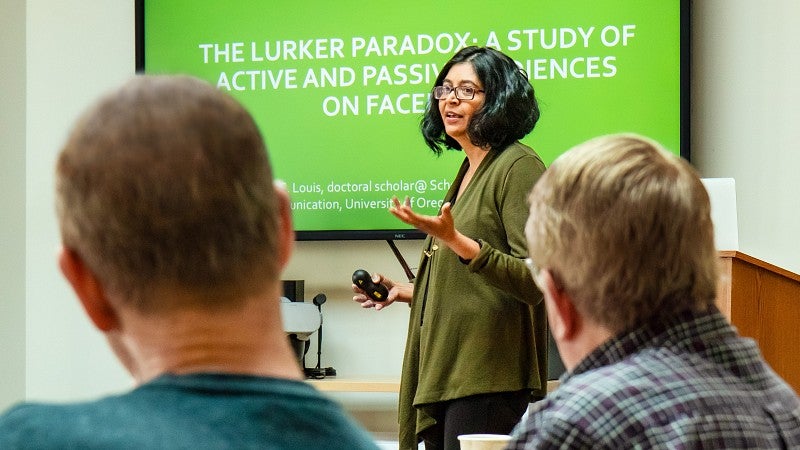
Doctoral Degree in Communication and Media Studies
Launch a trailblazing career in media research.
In our doctoral program, you’re more than just a student. You’ll work as a co-author, scholar, and teacher and become part of a welcoming and inclusive community influenced by perspectives from across many disciplines and cultures around the world. You’ll also conduct impactful research that contributes to the field and your research portfolio under the guidance of SOJC faculty advisors.
Our faculty are internationally recognized experts in many mass communication and media research topics, including science, health, and environmental communication; technology and society; game studies; global media; critical/cultural approaches to communication; persuasion and media psychology; media and public life; and more.
Apply » Degree Requirements » Sample Schedules » Courses » Faculty and Staff » Visit Us »
Take flight with a Communication and Media Studies Doctoral Degree
Students in our media studies graduate program develop the knowledge, skill, and research portfolios to claim teaching and research posts at top universities and think tanks around the world. But their analytic and research skills set them apart in any field.
Meet More PhD Alums
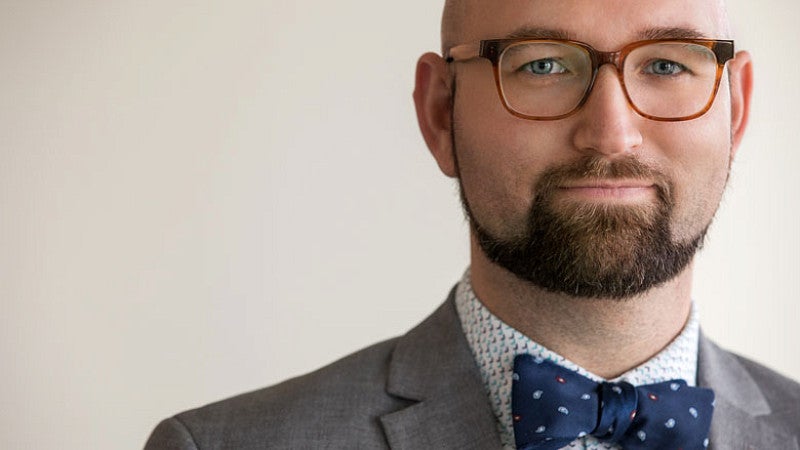
Bryce Macher ’13 is a data scientist for Hilton Innovation Lab. →
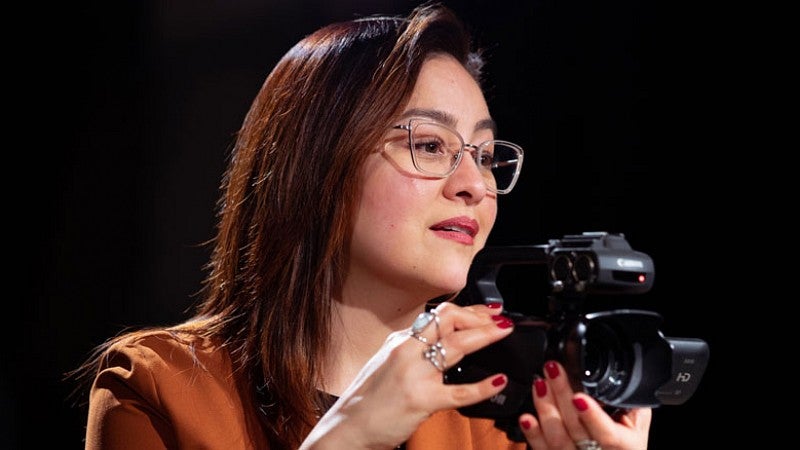
Sonia De La Cruz ’14 is a professor and documentary filmmaker. →
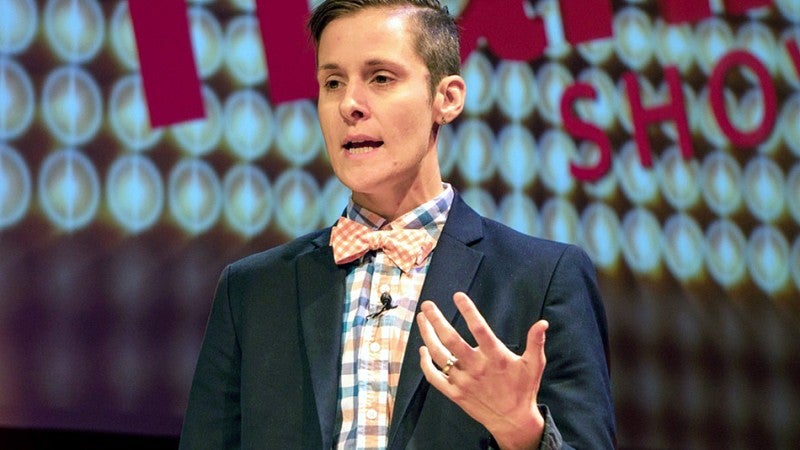
Erica Ciszek ’14 studies how communication affects understandings of gender. →
Take flight with a Communication and Media Studies Doctoral Degree
Students in our media studies graduate program develop the knowledge, skill, and research portfolios to claim teaching and research posts at top universities and think tanks around the world. But their analytic and research skills set them apart in any field. A communication and media studies degree offers a solid foundation that can springboard you into academia or a career in media, government, law, or nonprofit work.
Communication and Media Studies PhD Program News
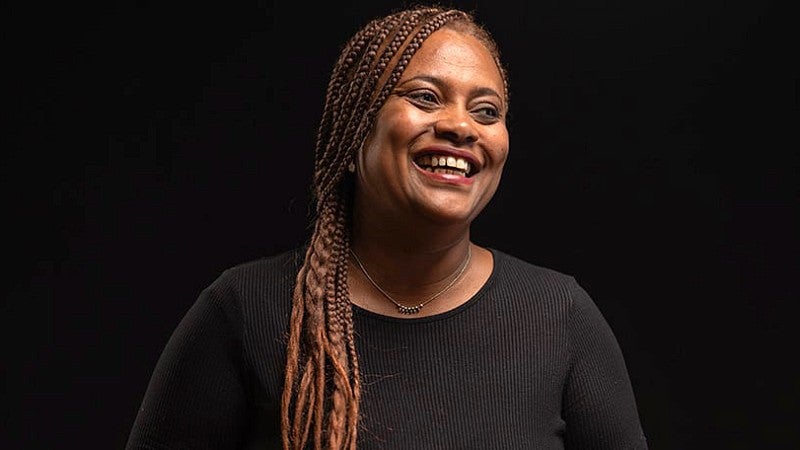
More News »
Named for renowned journalist Eric W. Allen , who founded the SOJC over 100 years ago, Allen Hall sits at the heart of the verdant University of Oregon campus. During your studies in Eugene, you’ll enjoy expert guidance, hands-on experience with the latest technology, and opportunities for collaboration.
You'll also have access to our state-of-the-art Experience Hub —part production studio, part research center, part hands-on learning lab—a place where students and faculty collaborate to develop innovative content and examine the media from every angle.
See a Sample PhD Schedule
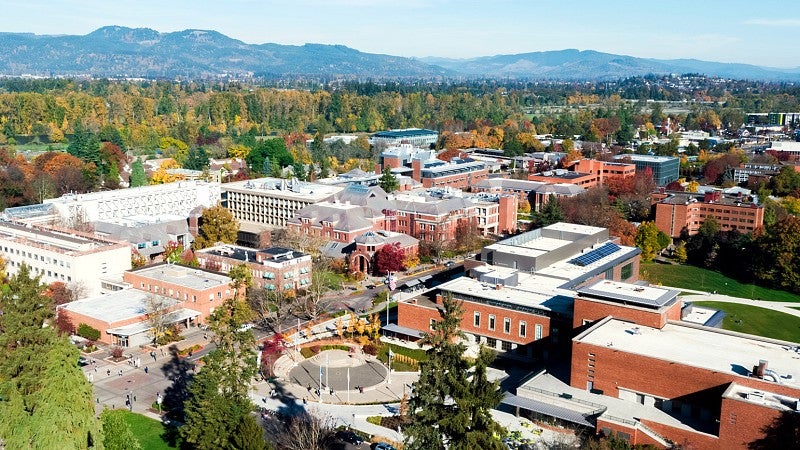
Study in the Beautiful Pacific Northwest
Fully funded phd.
You bring the intellectual curiosity, we’ll take care of the tuition: Our doctoral candidates are fully funded for four consecutive years*, including health benefits and a stipend. We also offer resources for conducting research that contributes to the field while preparing you for a career in higher education or meaningful work in the public and private sectors.
*Eligibility for continued funding requires maintaining satisfactory academic progress.
Learn More about Funding
Student research
Our doctoral candidates work with internationally renowned SOJC faculty experts to do groundbreaking research on today’s most pressing communication and media realities.
See More Student Work
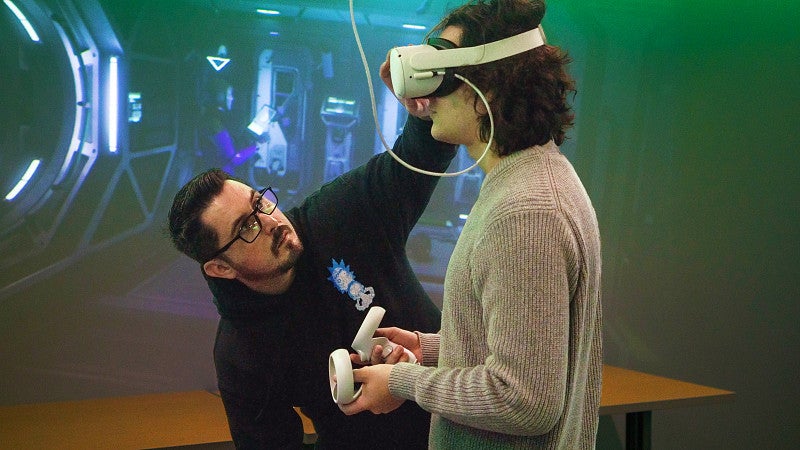
Meet Our Faculty View All Communication and Media Studies PhD Faculty →
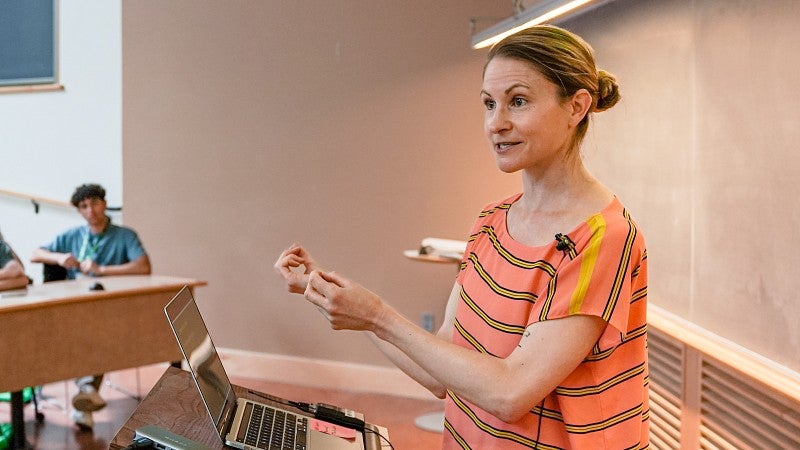
Whitney Phillips Assistant Professor of Digital Platforms and Ethics
Whitney Phillips uses her research and teaching to help students and consumers of media navigate the potentially treacherous terrain of what she’s coined the “information hellscape.” The modern media landscape is fraught with political biases, implicit messages, and harmful communication, but it is also a powerful tool. So Phillips challenges and inspires her students to incorporate self-care and mindfulness into their media-consumption regimens.
Learn about Whitney’s Research
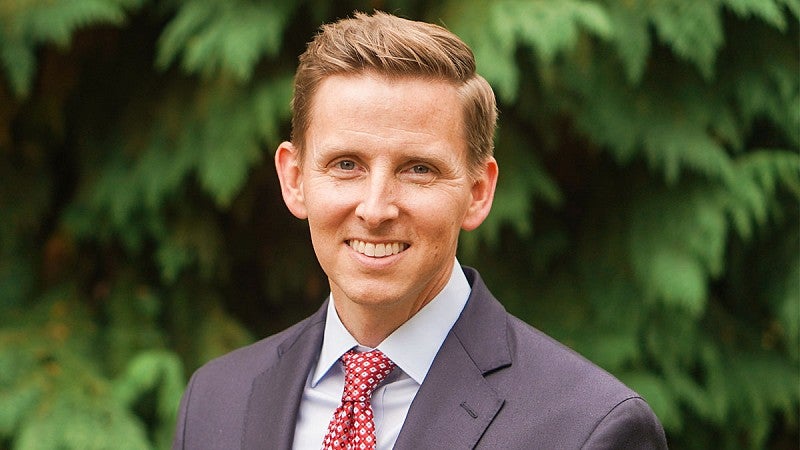
Seth Lewis is an expert on the digital transformation of journalism. →
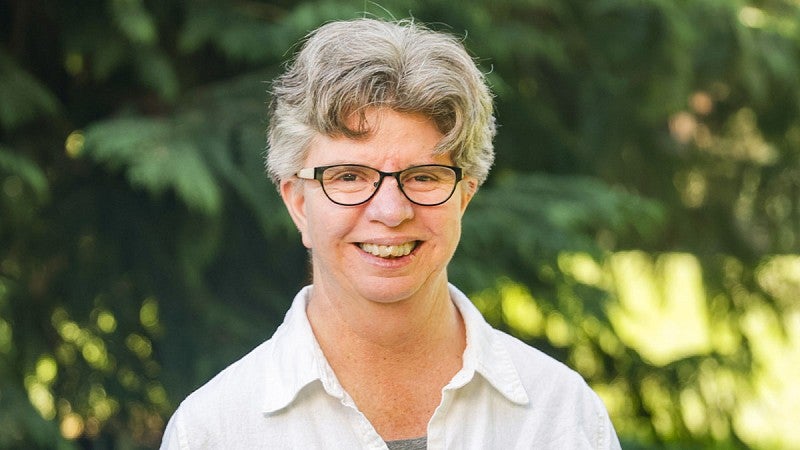
Gabriela Martínez is a gender studies researcher and award-winning documentary filmmaker. →
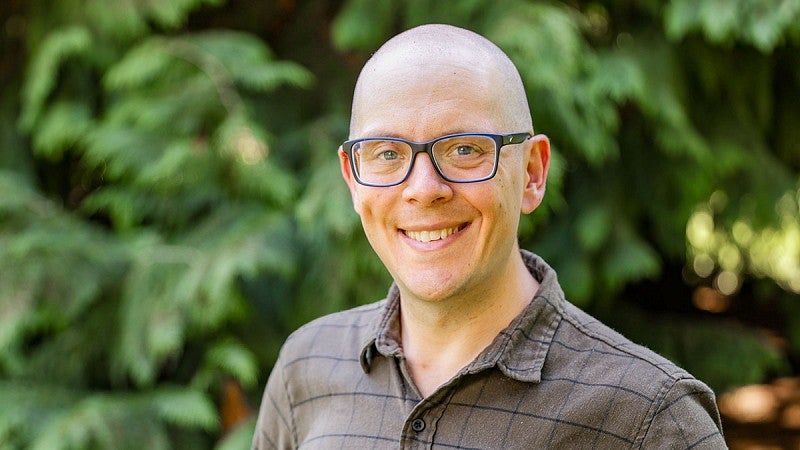
Maxwell Foxman researches how play manifests in nongame contexts. →
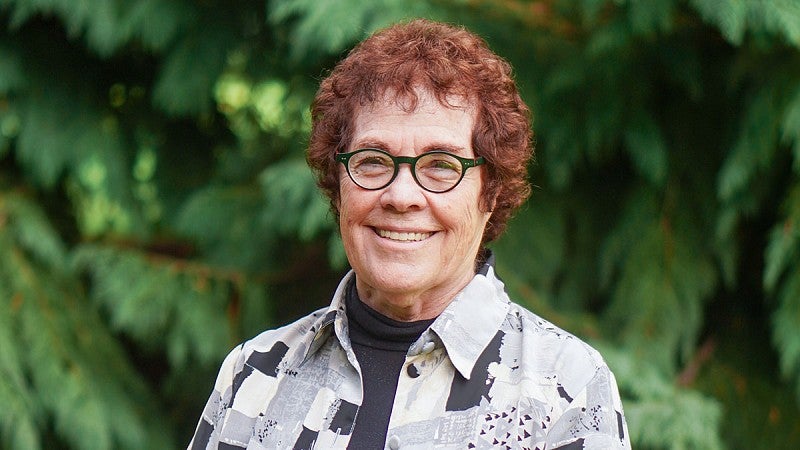
Janet Wasko is an expert in the political economy of media and all things Disney. →
Meet Our Faculty
Whitney Phillips Assistant Professor of Digital Platforms and Ethics
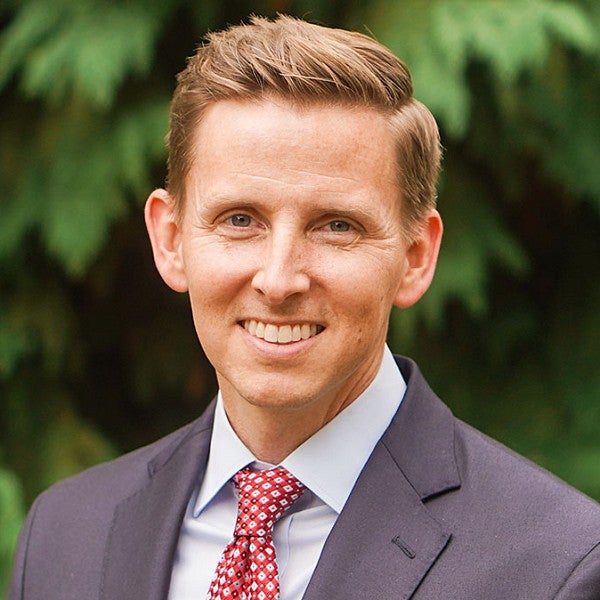
Seth Lewis is an expert on the digital transformation of journalism. →
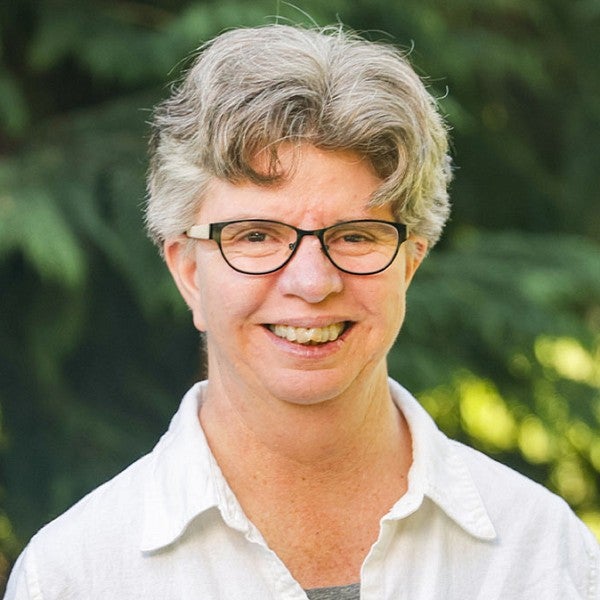
Gabriela Martínez is a gender studies researcher and award-winning documentary filmmaker. →
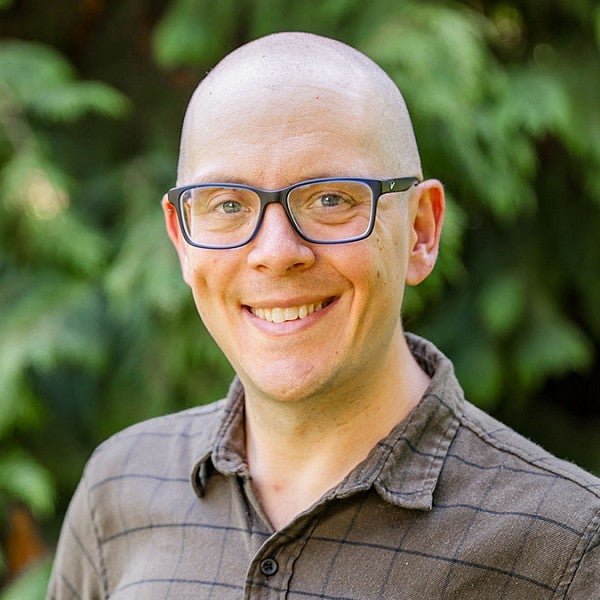
Maxwell Foxman researches how play manifests in nongame contexts. →
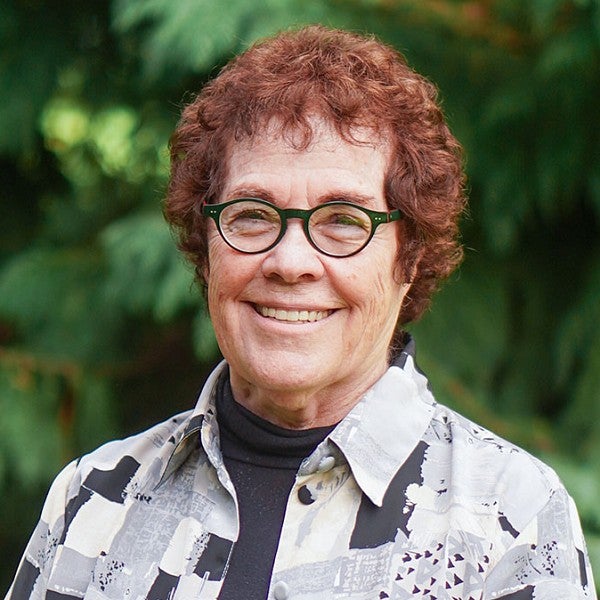
Janet Wasko is an expert in the political economy of media and all things Disney. →
View All Communication and Media Studies PhD Faculty →
Next Steps:
Request more information Fill out a quick form and our graduate recruiter will be in touch soon! →
Check out campus Schedule an in-person tour of Allen Hall or watch our virtual tour video. →
Start your application Ready to join us and become a Duck? Get started now. →
What are you looking for?
- School Leadership
- Diversity and Inclusion
- USC Annenberg Magazine
- Commencement
- Undergraduate Majors
- Master's Programs
- PhD Program
- Graduate Applicants
- Undergraduate Applicants
- Connect and Visit
- Tuition and Financial Aid
- Faculty and Staff Resources
- Advisement and Academic Services
- International Programs
- Career Development
- Progressive Degrees
- Organizations
- USC Annenberg’s Media Center
- Student Work
- Master's Programs
- Faculty Recognition
- USC Annenberg's Media Center
Communication (PhD)
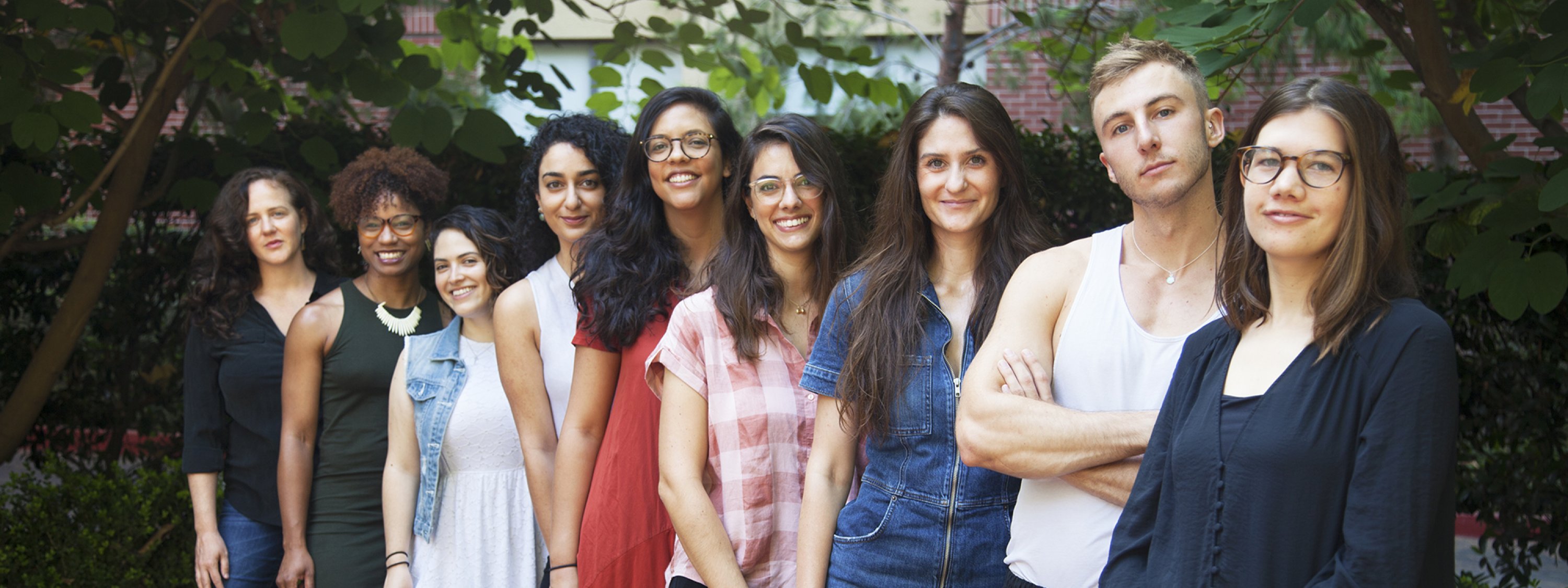
You will acquire the leading-edge theory and research methodologies you need to shape a more ethical and just world.
Whether you seek a career in academia, the industry, or governmental and non-governmental organizations, you will become a critical educator and researcher of communication through rigorous coursework, independent and collaborative research projects, and teaching opportunities.
You will work side by side with your peers and our distinguished faculty to advance knowledge in the field while creating interdisciplinary solutions to complex societal and organizational problems. At the same time, you will build a professional network of worldwide and lifelong connections with fellow scholars and practitioners.
USC Annenberg’s location at the heart of a top-tier research university and in the dynamic city of Los Angeles provides you with the ideal setting to explore ways to inventively fuse your scholarship and expertise in communication studies with disciplines such as political science, international relations, sociology and information sciences as well as gender, media and popular culture studies.
Program Information
- Learning Objectives
- Research and Teaching
- Areas of Study
- Current Doctoral Students
- Class Profile
By the numbers
Student and faculty work.
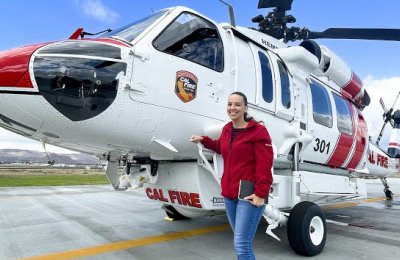
Changing the world through better communication
Former U.S. Navy Blue Angels team member Amber Lynn Scott became interested in studying high-reliability organizations for her dissertation to make a positive impact for military and first responders.
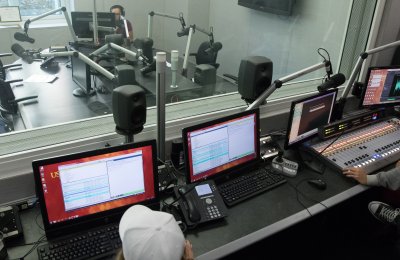
Requiem for a meme
Alexandria Arrieta researches how the intersection of memes and music are having a profound impact on people’s communication and connection across social media.
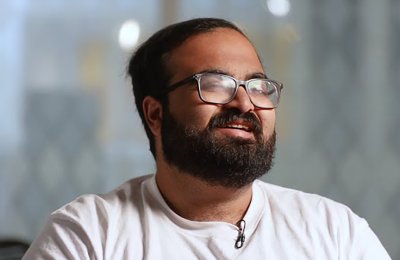
Making social media a better tool for political activism
With his lifelong interest in politics, Alfonso Hedge realized Annenberg’s doctoral program would be the perfect place to study how grassroots political organizations use social media.
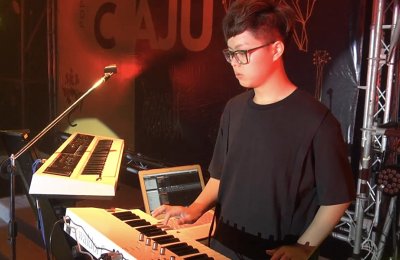
From music to AI
Event promoter and DJ Stephen Yang examines the on-the-ground practices of technologists and media professionals as they reshape the culture of production.
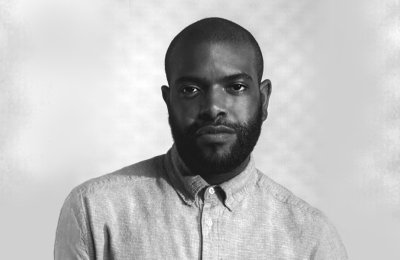
Jermaine Anthony Richards named 2023 Paul & Daisy Soros Fellow
The merit-based program provides funding for Richards to explore his research on how transmedia storytelling animates human security politics, security cultures, and political movements.
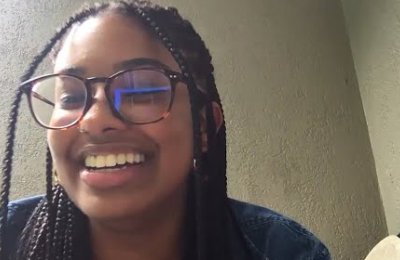
Exploring identity through social media
Samah Sadig shares her passion for identity, expression and education — and how it all brought her to USC Annenberg.
Work on groundbreaking research with expert faculty
As innovations in information and communication technologies continue at a rapid pace, USC Annenberg remains at the forefront of efforts to explore these social, cultural, rhetorical and organizational processes. You will work and collaborate with fellow doctoral students, our world-class faculty, and industry and public/private sector professionals to advance research and insights across a wide range of interdisciplinary areas of study. You will also have the opportunity to lead research endeavors that impact scholarship and practice across the contemporary communications landscape.
Explore the research of USC Annenberg faculty and students. View the areas of study available to our PhD students.
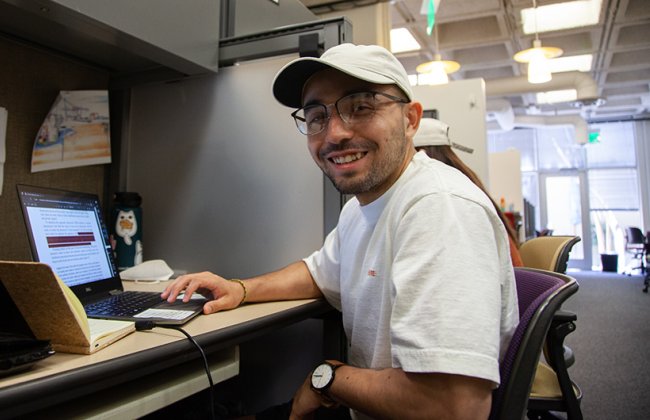
Get to know your fellow students
The communication doctorate program enrolls students from diverse backgrounds, nationalities and educational experiences. Connect with fellow students by viewing their profiles and get to know USC Annenberg through their eyes.
Communication (PhD) faculty
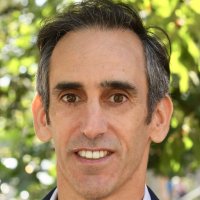
- Graduate Studies
Ph.D. in Media and Communication
Our doctoral program in Chapel Hill prepares students to lead in the academy and industry.
- Cost & Funding
We offer a close-knit community where students learn, develop as scholars and collaborate with faculty advisers and mentors.
You’ll learn cutting-edge research methods and acquire a deep understanding of communication theory to help you develop a research program that fits your interests. Our graduates are training the next generation of scholars, improving public health, strengthening democracy and helping leading organizations across the world innovate in a changing media environment.
Numbers of Distinction
AEJMC Nafziger-White-Salwen Dissertation Awards since 1984: No other program comes close.
New graduates in the last five years who have become assistant professors or postdoctoral fellows, with 61% of those assistant professors at Carnegie R1 institutions
Value, over three years, of a Park Fellowship
One-year expenditures for externally sponsored research
Online info session: Ph.D. in Media and Communication
November 6, 2023.
Sign up to attend an online info session about our doctoral program. Hear from program director Shannon McGregor and ask questions about the admissions process.
A network of support, at Carolina and beyond
As she completed her master's at the Hussman School, Kyla Garrett Wagner wasn't sure whether she'd stay in Chapel Hill for her doctorate. She applied to eight other programs but decided to stay where she felt her ideas were most supported. "While it is a competitive school and one of the best schools, we're not competitive with one another on the inside," she says. "We all can work together, and that's an incredible feeling."
Why Carolina?
- Get access to world-class resources on campus and a worldwide network of more than 16,000 UNC Hussman alumni.
- Chapel Hill and the Research Triangle region are home to college-town charm, abundant culture and high-tech industry.
Learn about the Hussman School
Our vibrant and collaborative interdisciplinary research culture creates new knowledge, advances scholarship and helps reinvent media.
Explore our research
The Roy H. Park Fellowships are among the most generous among media and journalism programs nationwide, providing top UNC Hussman doctoral applicants the financial support necessary for the students to focus on their academic and professional development.
Complete this form, and we’ll send you more information and program updates.
Or contact the Graduate Studies team at [email protected] or (919) 843-8307.
Student and Faculty Research
Theory and Research Ph.D.
Main navigation.
The Ph.D. program prepares students to conduct original research on communication processes, their origins, and their psychological, political and cultural effects. Most of our doctoral graduates enter academic teaching and research careers, or communication-related professions that require research skills.
Students usually enter the program with strong interests in one of our three areas of special strength: Media Psychology , Political Communication , or Journalism, Media and Culture . Within the program, students tend to anchor in one area while exploring key empirical and theoretical concerns in the others. After a core curriculum of courses in quantitative and qualitative methods, statistics, and mass communication theory, each student builds a research specialization through advanced courses and seminars in Communication and related departments, research projects, teaching, and an examination in the area of concentration. These requirements are normally completed within four years, and the dissertation within six.
Ph.D. Requirements and Procedures

Doctorate in Communication
With one of the nation's premier doctoral programs in Communication, the Annenberg School is a tight-knit, supportive community of scholars committed to advancing knowledge of our media environment.
Founded through the generosity and vision of publisher, diplomat, and philanthropist Walter Annenberg, the Annenberg School for Communication is devoted to furthering our understanding of the role of communication in public life through research, education, and service. Our five-year doctoral program has a strong reputation as one of the best in Communication, based on Annenberg’s unparalleled combination of world-class faculty , students , and alumni , as well as access to the larger intellectual and cultural resources of the University of Pennsylvania and Philadelphia .

In an inherently interdisciplinary field, Annenberg researchers are engaged with a spectrum of topics related to health, politics, media systems, networks and digital culture, journalism, race and gender, and more, using both qualitative and quantitative methodologies.
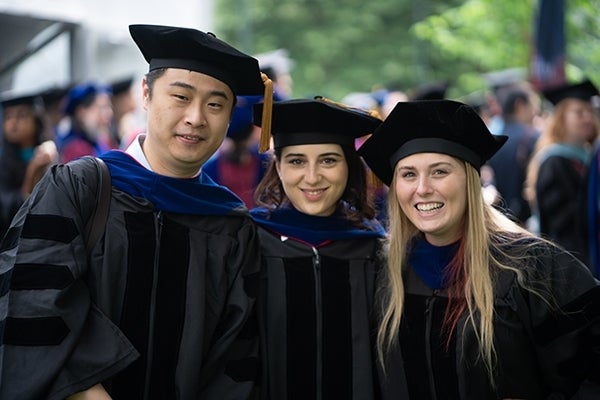
Our Ph.D. program allows students to tailor a curriculum to suit their specific interests, and provides them the financial resources to launch their academic career.
In addition to a full tuition waiver, our students currently receive an annual stipend as well as a budget for research and travel and health insurance for all five years.
Annenberg is the smallest of the 12 schools at Penn, and it functions as close-knit community of scholars whose doors are always open to one another. Our students also appreciate our staff , who routinely go above and beyond to support them.
Please note that we do not have a standalone master’s degree program at this time. All students are admitted directly into the doctoral program.
Request for More Information
Our Students By the Numbers
Here are some fast facts about our students and the admissions process . Get to know Annenberg!
Students currently in the program
Different nationalities represented by our students, applicants each year, students accepted each year, average undergraduate gpa of applicants, average toefl of admitted candidates, of students came from a previous graduate degree program, of students worked in a career before joining annenberg, of students came straight to annenberg from an undergraduate degree.
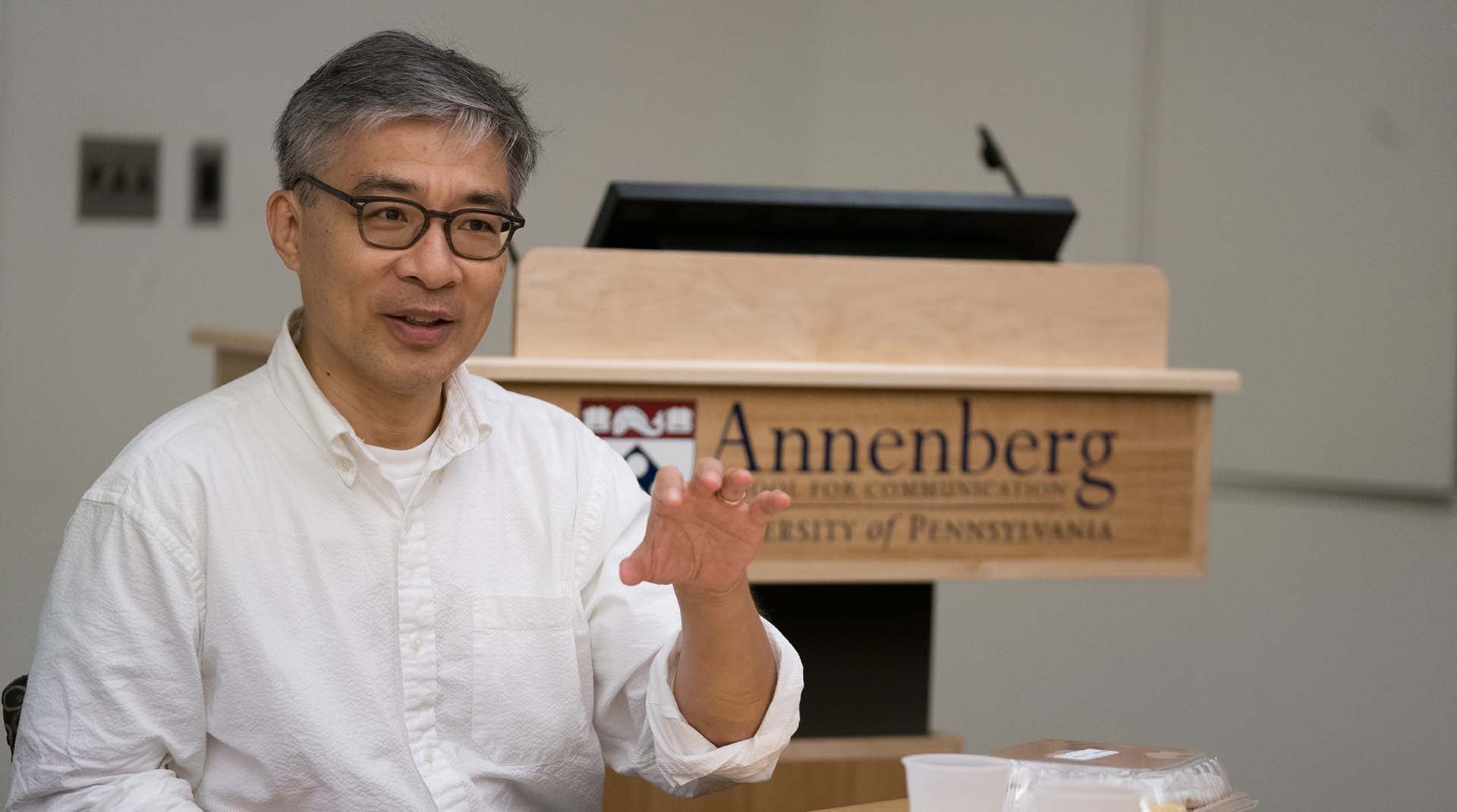
Our Faculty
Our graduate faculty is at the heart of the school. Their innovative work, often in collaboration with students, pushes the field of Communication forward.
Students on Video
Hear from some of the Annenberg School's doctoral students as they talk about their work and what brought them to Annenberg.
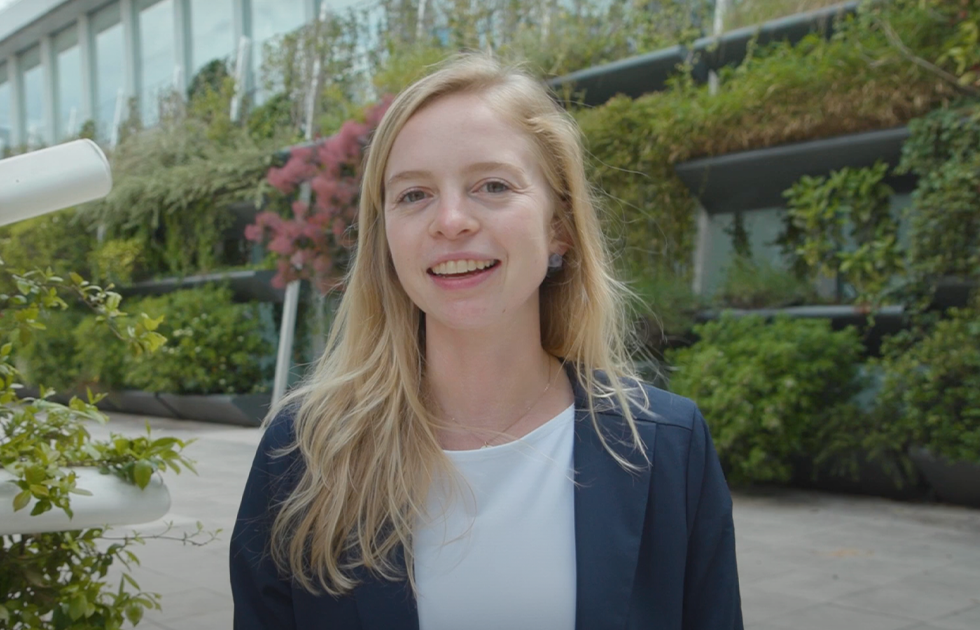
What is it like to be a doctoral student at the International Communication Association annual conference? We followed four students to find out.
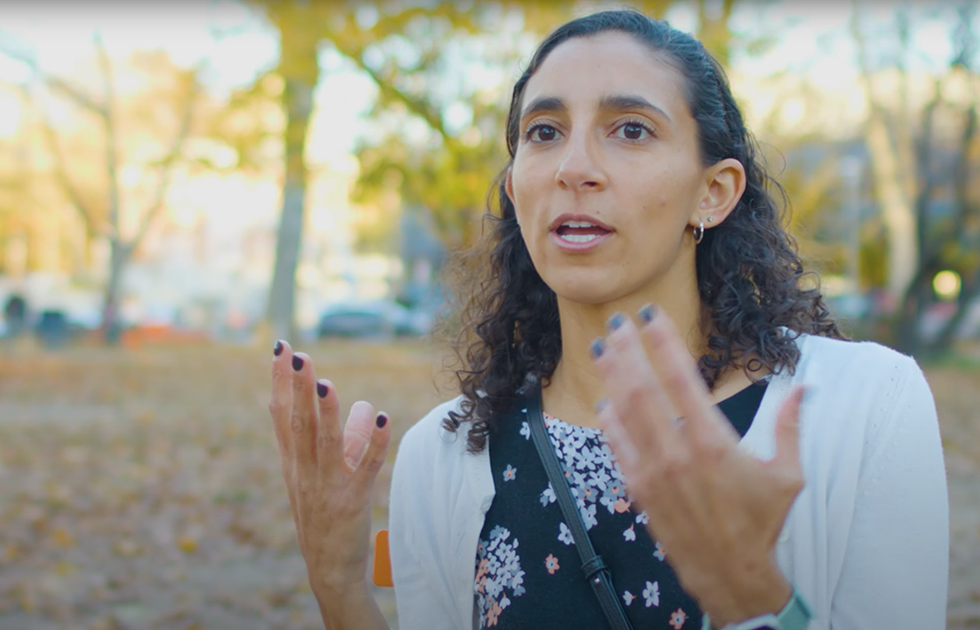
During the early days of the COVID-19 pandemic, doctoral candidate Kelly Diaz used her phone to document the many signs displayed in yards and windows around her West Philadelphia home. She has now collected that body of work into a photo essay .
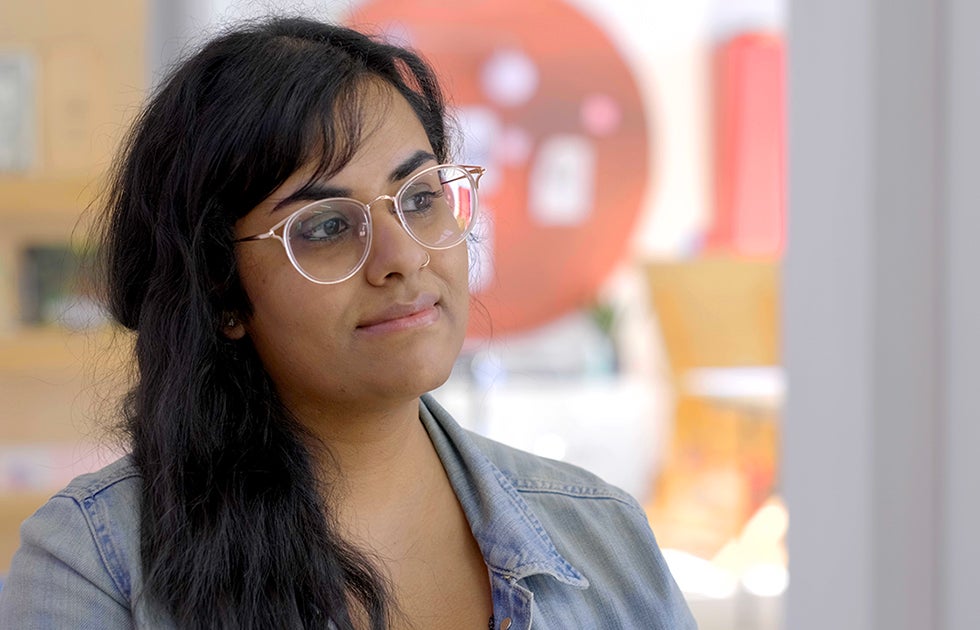
Doctoral Candidate and artist Roopa Vasudevan studies the ways that the everyday technologies shape our daily lives.
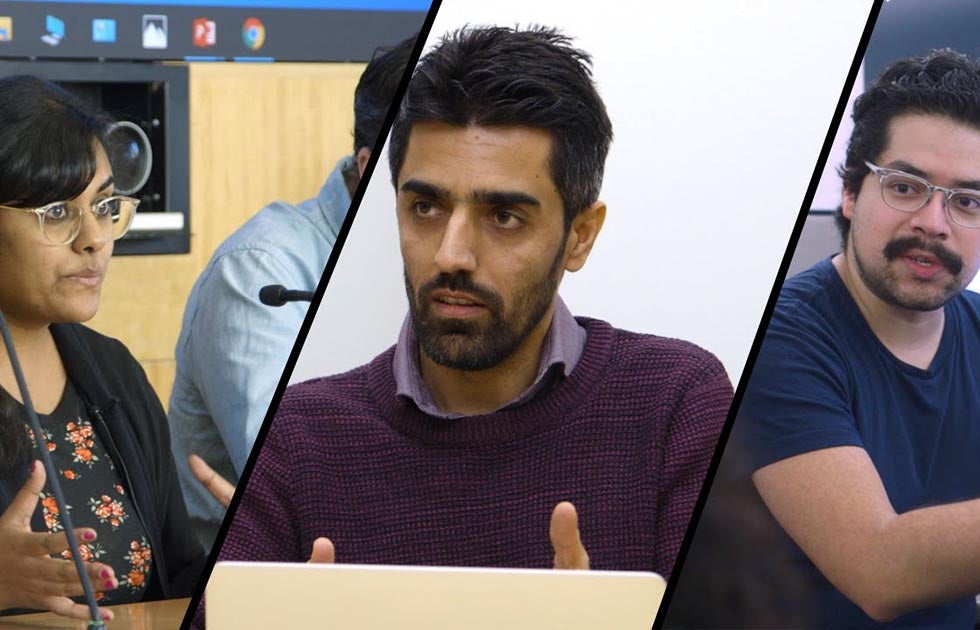
What is it like to be a Ph.D. student? We followed five of our students through their daily activities.
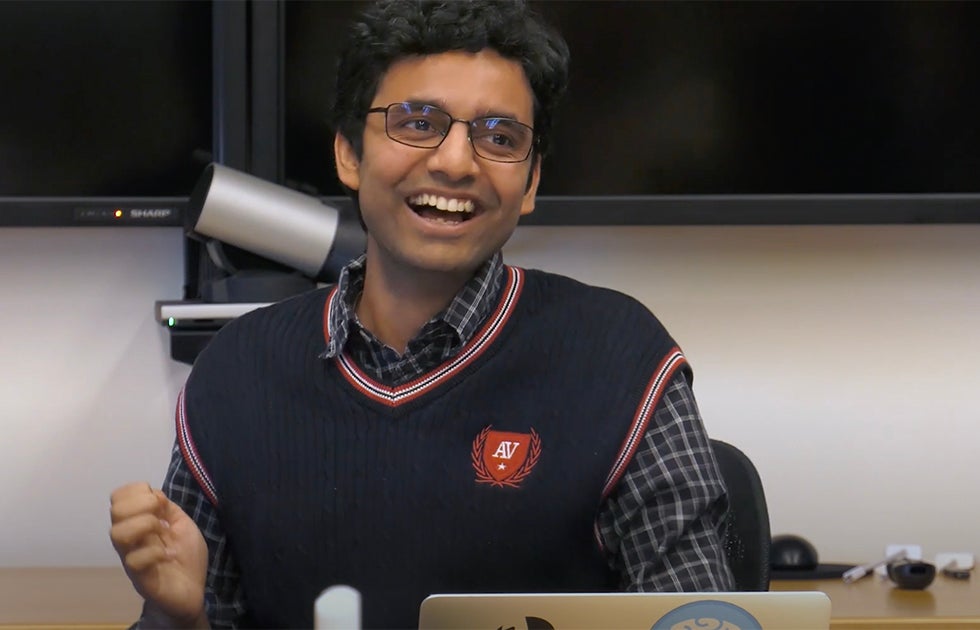
Prateekshit Pandey works with the Communication Neuroscience Lab to study how the brain reacts to humor.
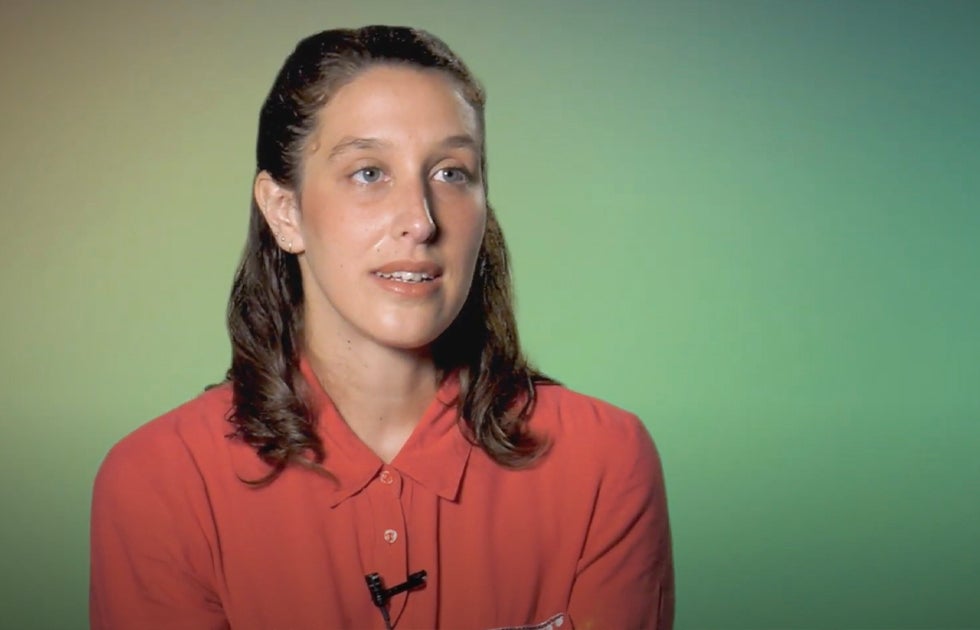
Buenos Aires-native María Celeste Wagner looks at how gender influences credibility in news.
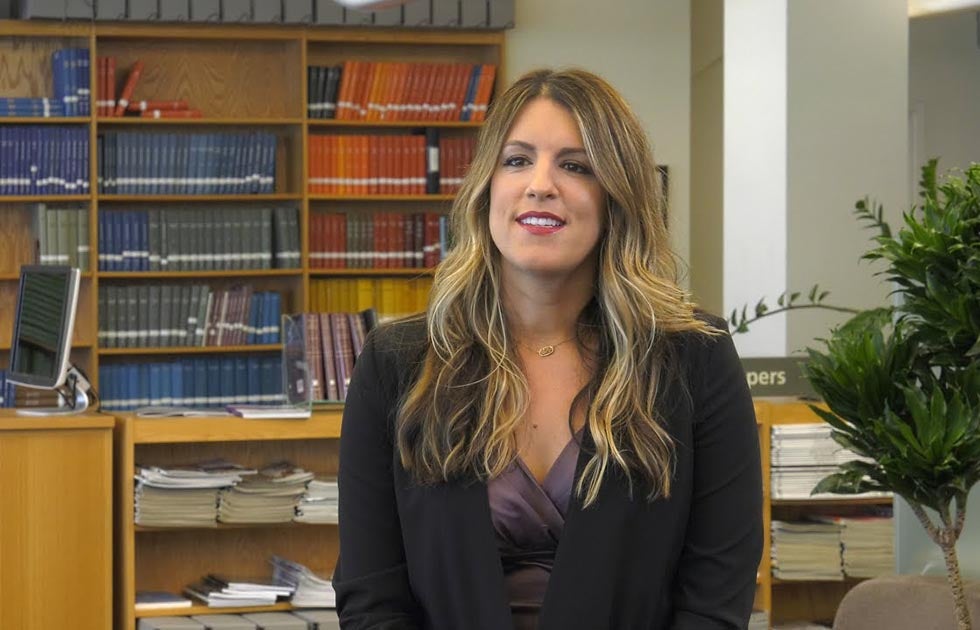
Jennifer Henrichsen studies the way that journalists adopt information security technologies to protect themselves and their sources.
Our Students
Annenberg's doctoral students represent a broad spectrum of interests, methodologies, and backgrounds. Here are just a few of our incredible students.
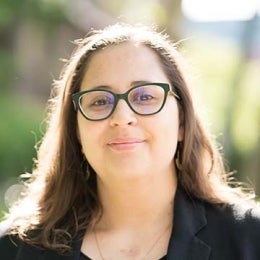
Arlene C. Fernández
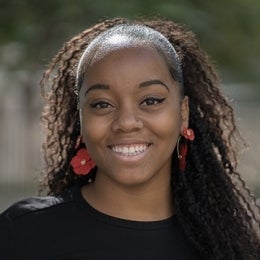
Azsaneé Truss
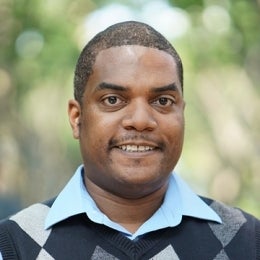
Antoine Haywood
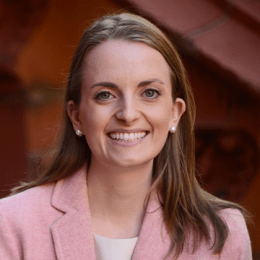
Danielle Clark
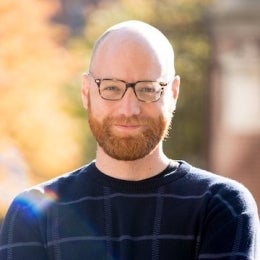
Neil Fasching
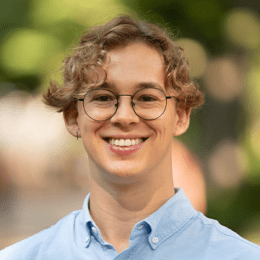
Tom W. Etienne

From Philly to Delhi: the Inaugural Global Media Cultures International Doctoral Institute
Organized by the Center for Advanced Research in Global Communication (CARGC), the Institute convened students and faculty from Annenberg and the University of Hyderabad.
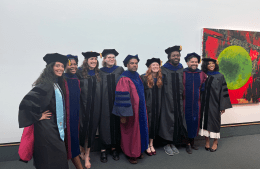
Congratulations to Annenberg’s 2024 Ph.D. and M.A. Graduates
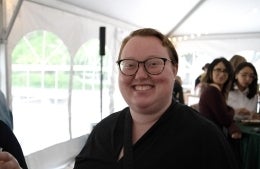
Student Profile Video: Kate Okker-Edging

Proust, Smith, and Truss Win 2024 James D. Woods Award
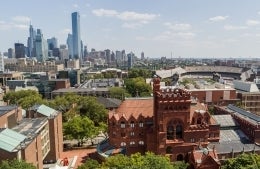
Azsaneé Truss Receives Penn Prize for Excellence in Teaching

Explore the Program
Learn more about life in the Annenberg Ph.D. program.
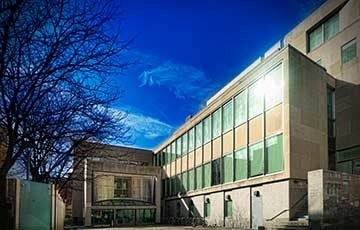
Financial Support
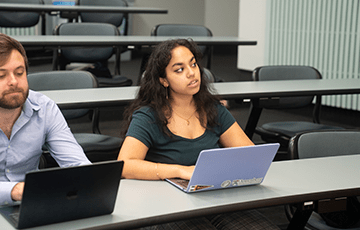
Curriculum & Milestones
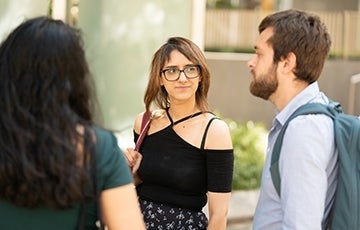
Student Life

Applications for 2025-2026 will open by October
More in doctorate in communication.
- Departments and Units
- Majors and Minors
- LSA Course Guide
- LSA Gateway
Search: {{$root.lsaSearchQuery.q}}, Page {{$root.page}}
- Comm Portal
- Undergraduate Students
- Graduate Students
- Alumni and Friends

- Departmental Forms
- Senior Thesis and Honors Programs
- Transfer Credit
- Senior Reflections
- Career Exploration
- Internships
- Study Abroad
- Undergraduate Research
- Departmental Funding
- Student Organizations
- Information Sessions
- Prospective Students
- First Year Research Project
- Summer Programs
- Services and Resources
- Graduate Placement Upon Graduation
- Stay Connected
- Engagement Opportunities
- Giving Opportunities
- Additional Resources
Welcome to the Ph.D. program in Communication and Media at the University of Michigan, a top department at a great university. The key attractions of our program are:
- The opportunity to work closely with world-renowned faculty to develop your own line of research, starting in your first year.
- An interdisciplinary program that trains students in both the social science and humanities traditions and methods in the field; students can work in either area or combine methods and approaches from both.
- Outstanding research strengths in the Social Scientific Analysis of Mass Media Effects and in Media, Culture and Society, including: Media Effects; Media Psychology; Political Communication; Media and Public Opinion; Health and the Media; New and Emerging Media; the News Media; Analyzing Media Texts; Gender and the Media; Race, Ethnicity, and the Media; International and Comparative Media; Media Audiences; Media Industries; Historical Approaches to Media and Technology; and Media Law and Policy.
- A program that offers five years of support to admitted students, and provides additional funding for travel to conferences and research funds for articles and dissertations.
- Getting involved in your own or collaborative research right away through First Year Project
- Opportunities for additional, funded summer training programs at Michigan and elsewhere.
- Our strong, interdisciplinary ties to other departments and schools in the university and to various research centers, including the Institute for Social Research .
We encourage you to learn more about what our department and graduate program can offer you by exploring our website.

- Information For
- Current Students
- Faculty and Staff
- More about LSA
- How Do I Apply?
- LSA Magazine
- Student Resources
- Academic Advising
- Global Studies
- LSA Opportunity Hub
- Social Media
- Update Contact Info
- Privacy Statement
- Report Feedback
- SCHOOL OF COMMUNICATION
PhD in Communication Studies - Northwestern University School of Communication

The Doctor of Philosophy in Rhetoric, Media, and Publics is replacing the PhD in Communication Studies (Rhetoric and Public Culture). Rhetoric, Media, and Publics is an interschool program between the School of Communication, Weinberg College of Arts and Sciences, and the Medill School of Journalism, Media & Integrated Marketing Communications; and it is based in the School of Communication.
The Rhetoric, Media, and Publics PhD program, grounded in the humanistic tradition of rhetoric, asks the fundamental question of how people influence, reflect, and transform society through mediated practices. Students learn to analyze the production and circulation of meaning in a range of rhetorical and journalistic texts, practices, and institutions through varied modes of qualitative inquiry, and to engage audiences and communities directly in the production of knowledge. The stakes of this inquiry are profoundly social and political as well as formal and aesthetic. The program teaches students to approach public media as sites for political contestation, for the representation and interrogation of ethics and power, and for imagining personhood and collective life.

- PhD in Communications & Media
The ICR has one of the most renowned communications Ph.D. programs in the world. Students in the program study such topics as media economics, organization and structure; media policy; political economy of the media; new technologies and new media; telecommunications; advertising and consumer research; journalism studies; media ethics; media and communications history; social and cultural studies of science and medicine; popular culture and film; race, ethnicity and gender; democracy and the media; and global/international communications. Recent Ph.D. dissertations have addressed a wide range of topics, from intellectual property and cultural production in Africa, to the history of sound technology, Chilean television infrastructure and policy, and advertising regulation and post-Mao journalism in China.
The ICR attracts many international students from such countries as Austria, Argentina, Barbados, Canada, China, Germany, Ghana, Ireland, Italy, Korea, the Netherlands, New Zealand, the Philippines, Russia and Turkey. Our graduate student body has been extremely successful in terms of research grants and fellowships both on campus and nationally, and recent graduates are employed internationally in institutions such as McGill University, UC-San Diego, Rutgers, the University of New Hampshire, CUNY Queens, the University of Chicago and Texas A & M.
Today, nearly everyone recognizes the importance of knowing everything possible about communication. Information technologies, media mergers and computer marvels are daily convention. Intellectually significant research on communication is not commonplace, however. Work of enduring quality develops from comprehending the gravity and stature of the subject, and communication is among the most challenging and fascinating areas that humankind has been inspired to address.
Its proper study crosses the boundaries of established academic disciplines and draws upon a holistic intellectual heritage grounded in the liberal arts, in the traditions of social scientific research and cultural interpretation, and in a thoroughgoing spirit of critical inquiry. This conceptual pursuit of the highest order requires preeminent standards of imagination, academic rigor and historical awareness.
These are qualities the Institute of Communications Research at the University of Illinois has nurtured in establishing its distinctive reputation. The Institute has encouraged innovative doctoral work, while striving to appreciate more deeply why the study of communication has endured through human history. These Web pages provide a glimpse into the Institute's intellectual environment, and they should be viewed only as a starting point. You can gain a richer understanding by discussing with faculty members and doctoral students how their special interests may relate to your own. We encourage you to do that, either through a phone call or a personal visit to the Illinois campus.
- Director of Graduate Studies: Amanda Ciafone
Office location: 119 Gregory Hall, 810 S. Wright St., Urbana, IL Phone: 217-333-1549
- Conference & Events
- Student Profiles
- Students on the Job Market
Communication, PHD
On this page:.
At a Glance: program details
- Location: Tempe campus
- Second Language Requirement: No
Program Description
Degree Awarded: PHD Communication
The Hugh Downs School of Human Communication offers a transdisciplinary graduate program leading to the PhD in communication.
This program provides coursework and resources in critical-cultural communication and rhetoric, health communication, intercultural communication, interpersonal communication, organizational communication and performance studies. Students receive training in communication theory, research methodology and multiple areas of emphasis, and they actively participate in one or more of the school's collaborative research initiatives.
The program is designed to meet the needs of students whose interests transcend traditional disciplinary boundaries and to prepare scholars for research-oriented careers in universities and in the public or private sectors.
Research Collaboratives
Doctoral Student Resources
Graduate Faculty
Bradley Adame Elissa Adame Benjamin Broome Pauline Cheong Steve Corman Olga Davis Uttaran Dutta Serap Erincin Laura Guerrero Jenna Hanchey Heewon Kim Loretta LeMaster Paul Mongeau Jonathan Pettigrew Tony Roberto Liesel Sharabi Sarah Tracy Joris Van Ouytsel Alaina Zanin
Affiliated Faculty
Christine Buzinde Cheree Carlson Stephen Carradini Marivel Danielson Mark Hannah Aaron Hess Jeffrey Kassing Jaime Kirtz Nicole Lee Jacqueline Martinez Lindsey Meân Majia Nadesan Gyan Nyaupane Brendan O'Connor Ashley Randall Vincent Waldron Greg Wise
Degree Requirements
96 credit hours, a written comprehensive exam, an oral comprehensive exam, a prospectus and a dissertation
Required Core (9 credit hours) COM 604 Theory Construction in Communication (3) Choose two: COM 607 Contemporary Rhetorical Methods (3) COM 608 Multivariate Statistical Analysis of Data in Communication (3) COM 609 Advanced Qualitative Research Methods in Communication (3)
Electives (45 credit hours)
Other Requirements (24 credit hours) COM 691 Seminar (24)
Research (6 credit hours) COM 792 Research (6)
Culminating Experience (12 credit hours) COM 799 Dissertation (12)
Additional Curriculum Information When approved by the student's supervisory committee and the Graduate College, this program allows 30 credit hours from a previously awarded master's degree to be used for this degree; 66 credit hours are required beyond an appropriate master's degree.
At least six elective credit hours must be coursework outside of the communication field.
Admission Requirements
Applicants must fulfill the requirements of both the Graduate College and The College of Liberal Arts and Sciences.
Applicants are eligible to apply to the program if they have earned a bachelor's or master's degree, in any field, from a regionally accredited institution.
Applicants must have a minimum cumulative GPA of 3.00 (scale is 4.00 = "A") in the last 60 hours of their first bachelor's degree program, or applicants must have a minimum cumulative GPA of 3.00 (scale is 4.00 = "A") in an applicable master's degree program.
Applicants must submit:
- graduate admission application and application fee
- official transcripts
- resume or curriculum vitae
- statement of goals
- three letters of recommendation
- writing sample
- proof of English proficiency
Additional Application Information An applicant whose native language is not English must provide proof of English proficiency regardless of their current residency.
Most commonly, students enter with a research-based MA in which they have completed a master's thesis.
Applicants should visit the Hugh Downs School of Human Communication website for further details.
Next Steps to attend ASU
Learn about our programs, apply to a program, visit our campus, application deadlines, career opportunities.
A doctoral degree in communication opens doors to a variety of careers in research, teaching, training and consulting. Graduates typically obtain jobs in research and teaching institutions that range from large research universities to four-year teaching schools and community colleges. A number of career opportunities appear in government agencies and organizations, both for-profit and nonprofit.
Graduates have obtained jobs as:
- academic administrators
- academic advisors
- campaign managers
- consultants
- policy advocates
- program directors
- researchers
Global Opportunities
Global experience.
With over 250 programs in more than 65 countries (ranging from one week to one year), study abroad is possible for all ASU students wishing to gain global skills and knowledge in preparation for a 21st-century career. Students earn ASU credit for completed courses, while staying on track for graduation, and may apply financial aid and scholarships toward program costs. https://mystudyabroad.asu.edu
Program Contact Information
If you have questions related to admission, please click here to request information and an admission specialist will reach out to you directly. For questions regarding faculty or courses, please use the contact information below.
- [email protected]
- 602/543-5619
COMMU-PHD - Communication (PhD)
Program overview.
Stanford’s Department of Communication focuses on media in all its forms. The department studies the processes and effects of mass communication: the nature and social role of the various media; their structure, function, and ethics; and their impact on the political system, culture, and society. In this context, it considers not only traditional mass media, such as newspapers, magazines, radio, television, and film, but also information technology, online media, virtual reality, and the Internet. Students are trained as social scientists who can study the media and as potential practitioners in the use of the media in journalism, mass communications, and digital media. The department combines theory and practice and fosters individual research opportunities for its students, employing quantitative and qualitative approaches.
University requirements for the PhD are described in the Graduate Degrees section.
The department offers a PhD in Communication, focusing on theory and research. Each student builds a research specialty relating communication to current faculty interests in such areas as ethics, computational journalism, information processing, data science, law, online communities, human-computer interaction, politics, voting, virtual reality, psychology of technology, history of technology, critical data studies, emotion regulation, personality expression, digital media and change across the life span, knowledge production, the influence of algorithms, personality and digital media, and information technology. Regardless of the area of specialization, the PhD program is designed primarily for students interested in university research and teaching or other research or analyst positions.
Students must complete the requirements listed in the Degree Requirements Section below for the PhD degree in Communication. Additional information is available in the Degree Requirements and Department Procedures for PhD Students and PhD Advisors (pdf).
Admissions Information
Prospective graduate students should see the Office of Graduate Admissions website and the Applications and Financial Aid section of the department website for detailed information and application materials. Submission of general Graduate Record Examination (GRE) test scores is optional. The Communication Department does not require any GRE subject tests.
Graduate Programs
Modern culture and media.
The Ph.D. program prepares students to engage in rigorous and innovative scholarship and teaching in the theory, history and critical analysis of one or more media in ways that encompass diverse cultural contexts and historical periods.
The Department of Modern Culture and Media is committed to the study of media in the context of a broader examination of cultural, social, and political formations. Modernity is understood as intimately interwoven with technical modes of production and reproduction. Those in the department study: print, insofar as it is connected to mass dissemination; photography; sound recording; cinema; video; television; and digital media. We examine media not in the narrow sense, but as immanent to the phenomena they produce and record.
Plans of study are individualized according to students' interests. Students may emphasize the scholarship of one medium or of several media and their interrelationships, but coursework and exams will also include a component in textual, cultural, and/or social theory. This combination enhances both disciplinary depth and interdisciplinary flexibility.
Additional Resources
The Malcolm S. Forbes Center for Research in Culture and Media Studies supports a range of activities, including public events (e.g., film festivals on contemporary French and Francophone cinemas, Turkish diaspora cinema in Germany, and African–Africana cinemas, and digital performance events) and scholarly conferences (e.g., on television and nationality, modernism and modernity, the archaeology of digital multimedia, and Walter Benjamin's Arcades Project). The Brown Film Archives is a pedagogical and research collection of film and video material in a variety of formats, including approximately 800 16mm film prints. The Department has a history of collaboration with other University units, such as the departments of Africana Studies, American Civilization, Comparative Literature, English, and History of Art and Architecture; the Pembroke Center for Teaching and Research on Women; etc.
Application Information
Application requirements, gre subject:.
Not required
GRE General:
Writing sample:, dates/deadlines, application deadline, completion requirements.
A minimum of 13 courses, including at least one seminar offered by the department in each of the following three areas: theory (of textuality, subjectivity, culture, the social, and/or a specific medium in relation to any of these), textual analysis (addressing a single medium or genre conceived as a textual object, a mode of cultural production, or a form), and historical/cultural locations (how the production, circulation, and reception of media forms operate in specific social contexts, periods, geocultural sites, and/or communities). Additional requirements include one foreign language, at least two years of teaching experience while in the program, a qualifying review after eight courses, an oral preliminary exam after completion of coursework, and a dissertation. The preliminary exam will be in three areas: the history and theory of a medium, an area of modern cultural theory, and an elective field.
Alumni Careers

Contact and Location
Department of modern culture and media, mailing address.
- Program Faculty
- Program Handbook
- Graduate School Handbook
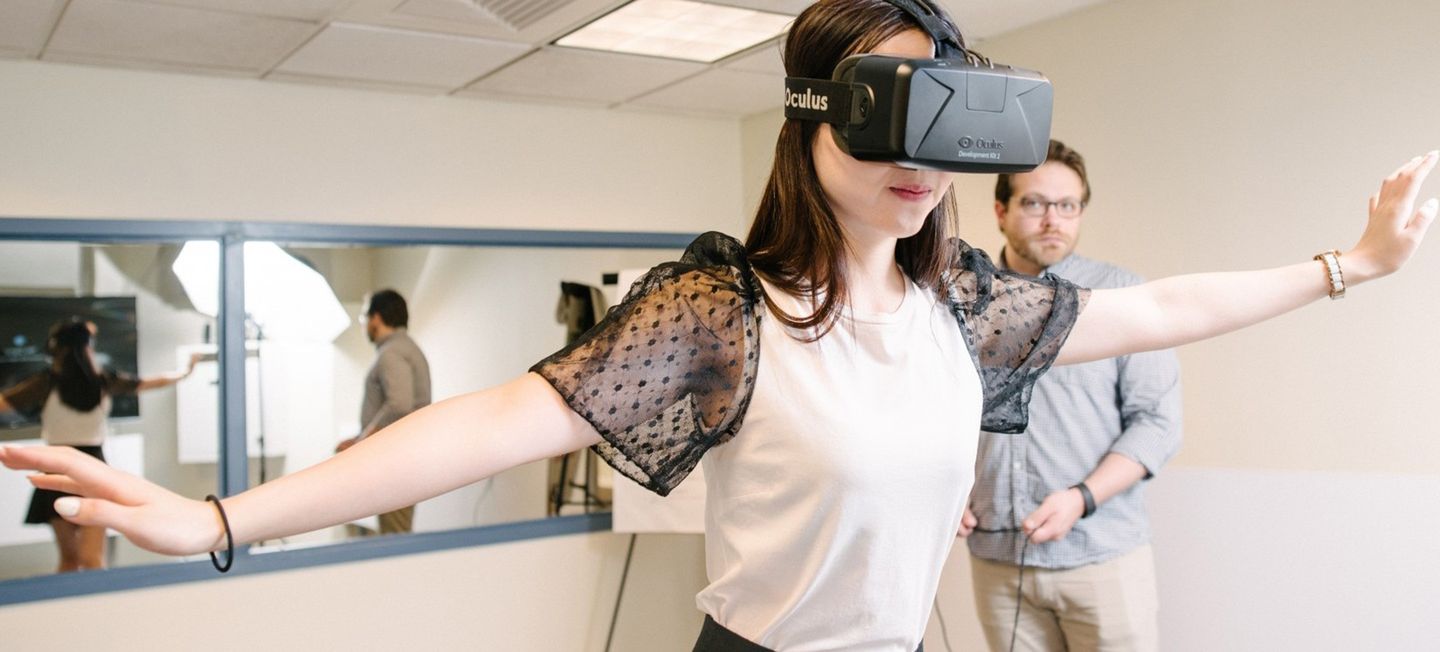
PhD in Emerging Media Studies
New media poses challenges for society and complexities for researchers. Are you ready to tackle both?
Academic Bulletin
- Degree Requirements
- PhD Students
- Request Info
The Boston University PhD program in Emerging Media Studies is the nation’s first doctorate program in emerging media and its critical, daily role in modern life.
COM’s unique program prepares its doctoral students to become sophisticated researchers and critical thinkers who are ready to advance the fields of communication, sociological, and media leadership. Designed for students with a master’s degree, this program helps candidates gain a comprehensive understanding of the role of emerging media in society and organizations and hone their research skills through independent, innovative, and mentored research.
Recent and upcoming dissertation topics address a wide array of topics, such as social perceptions of robots, the effects of television binge-watching, and media framing of direct-to-consumer genetic testing.
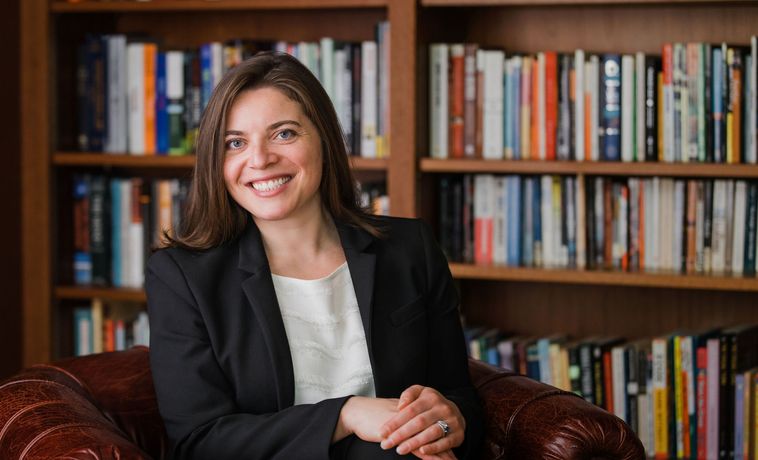
Meet COM’s First Doctoral Recipient, Sarah Krongard
It seems there’s always something to celebrate at COM, and the 2019 fall semester marked one particularly noteworthy achievement — PhD…
Learning and Teaching
EMS graduate students are taught and mentored by some of the leading researchers and thinkers in the field. The faculty make full use of the most advanced theories and methods to examine communication phenomena — from social media, streaming content, and AR/VR to Big Data and AI. Under their guidance, students learn how to conduct and analyze social science research concerning all types of emerging media.
As a doctoral student, you’ll serve as a teaching fellow while enrolled in the program. On average, you should expect to serve as a teaching fellow a minimum of two times during the program.
Resources for Research
COM graduate students get ready for careers by rolling up their sleeves for hands-on research.
All Emerging Media Studies students contribute to COM’s annual #ScreentimeBU conference, an opportunity to present their research in the field of digital communication and society as well as exchange their views with peers and field leaders concerning important contemporary issues. By showcasing the fruits of your research, you’ll share their ideas with the general public and industry leaders. Additionally, the conference provides an opportunity for you to develop your public communication capabilities and receive input from industry experts in a professional setting.
CENTER FOR MOBILE Communication Studies
Laptops, smart phones, and tablets have been transformed from novelties to necessities. But we’re only beginning to understand how they have transformed us.
EMS students also take advantage of research opportunities at COM’s Communication Research Center , COM’s primary research hub, and the state of-the-art technology offered at the Zimmerman Family Social Activation Center, that puts in-depth social media analytics at your fingertips.
Funding Support
Because the doctoral program is immersive and requires full-time participation for a number of years, all PhD students in Emerging Media Studies are funded for the duration of their study, up to a maximum of five years. Funding includes a full tuition scholarship, health insurance credit, and stipend in return for teaching and research obligations. Students with their own funding for the program (through the Fulbright Commission, government funding or other source) will still be required to serve as a teaching fellow for at least one semester. Compensation will be provided.
Benefit from Boston
One of BU’s greatest resources is its location. Consistently ranked among the most livable cities in the world, Boston is “America’s college town,” a city rich in history while remaining on the forefront of culture and innovation. Boston is a Top 10 U.S. media market, and home to some of the world’s best creative agencies, media companies and leading employers — offering boundless opportunities for internships and careers.

More than 80%
of our graduate students receive scholarships.
Purpose Driven
COM stands out from our peers. Our faculty offers a mix of researchers and practitioners who endorse a cross-discipline, hands-on approach to learning. Our location lies at the heart of an electric, media-savvy city.
But it may be COM’s shared values that matter most. We believe that communication requires diversity, critical thinking, and creative expression. We believe that communication must be grounded in truth, authenticity, effectiveness, and purpose. We believe that communication builds understanding among people and across society.
Emerging Media Research
Agenda setting in the wizarding world: computationally examining attribute agenda and….
Abstract: This study investigates the complex dynamics of public discourse on Twitter/X concerning the transgender-related controversy surrounding the video game…
Physiological response to political advertisement: Examining the influence of partisan and…
This study investigates voters’ physiological response to real political advertisements that are issue focused and sponsored by three different political…
Does world system theory rein in social media? Identifying factors contributing…
This article examined how social media content has shaped the representation of countries for publics around the world. Based on…
The Robot Rights and Responsibilities Scale: Development and Validation of a…
The discussion and debates surrounding the robot rights topic demonstrate vast differences in the possible philosophical, ethical, and legal approaches…
Meet the Emerging Media Faculty
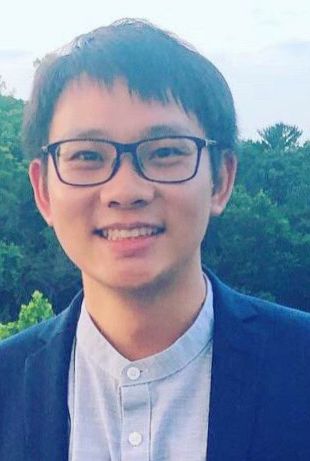
Chris Chao Su
Assistant professor, emerging media studies.
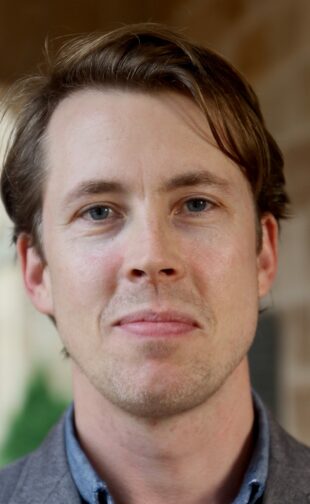
Chris Wells
Associate professor, emerging media studies.
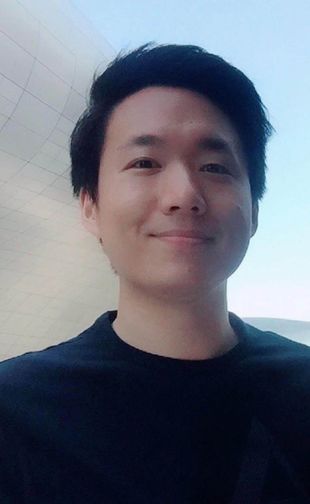
Daniel Park
Visiting assistant professor, emerging media studies.
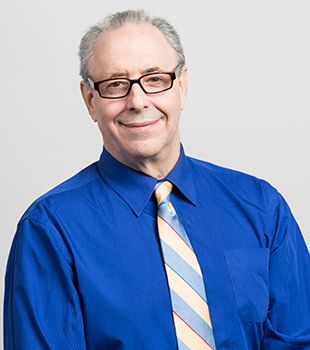
Feld Professor of Emerging Media
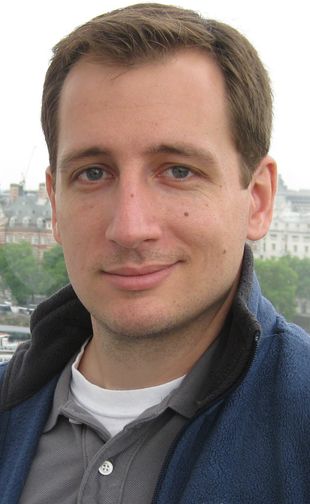
James Cummings
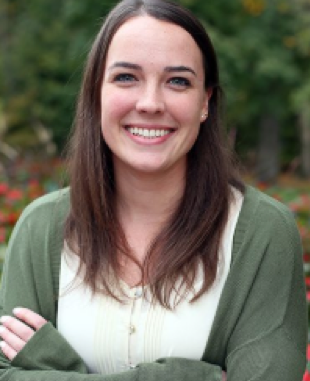
Kelsey Prena
Emerging media news, com’s new dalton professor knows disinformation from personal experience.
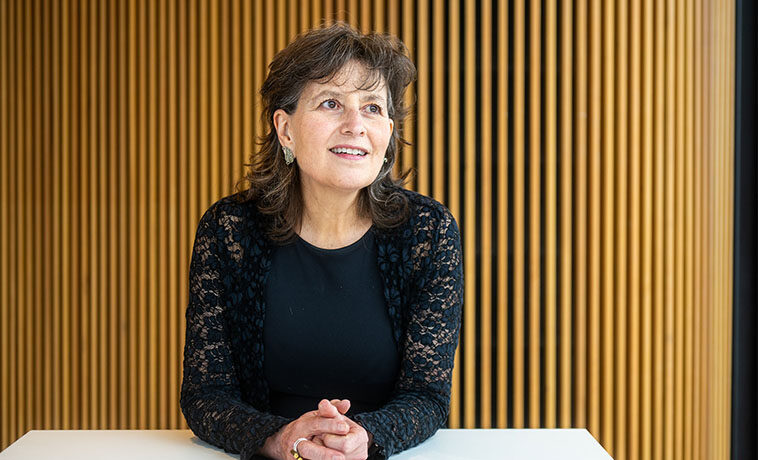
When Robots Deliver the News
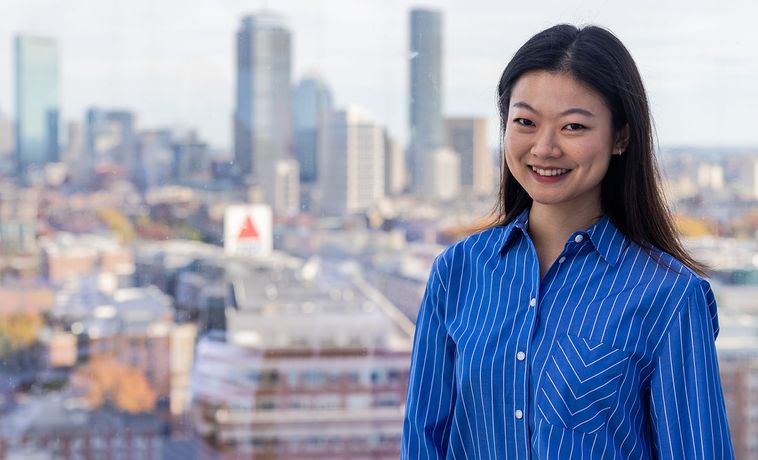
Joan Donovan, Nationally Recognized Expert in Misinformation and Disinformation, Joins COM Faculty
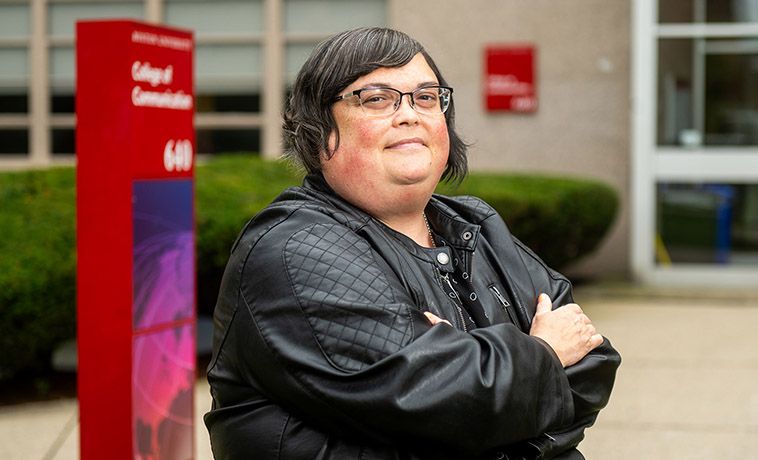
Emerging Media Studies
Ph.D. in Strategic Media Online Lead with Insight

Credit Hours
View Courses
100% online, 8-week courses
Transfer in up to 50% of the degree total
Become an Expert in Strategic Communications with a Ph.D. in Strategic Media
Today’s world is buzzing with digital conversation. From politics to healthcare and human services, every industry is impacted by the media. By pursuing a Ph.D. in Strategic Media, you can grow your organization and your career by understanding the theory behind effective communication and the application of practical techniques to 21st-century problems.
Imagine utilizing the latest trends in video, graphic, and online visual persuasion to take your organization to new levels. Paired with the management and leadership skills you can cultivate in our Ph.D. in media studies, your new expertise can help you shape the future direction of policies, goals, and objectives within the communication sector.
Liberty’s Ph.D. in media studies blends theory with praxis. Through this online program, you can develop a strong background in communication theory, strategic media communication, and applications for nonprofit, for-profit, and higher education sectors. So whether you work in an academic, corporate, or faith-based setting, this degree can equip you with the social media and strategic communications tools you need to bring fresh insight to your company. And with a degree taught from biblical principles, you can become a trusted, ethical voice in media and communication.

Ranked in the Top 10% of Niche.com’s Best Online Schools in America
- What Sets Us Apart?
- Private Nonprofit University
- 600+ Online Degrees
- No Standardized Testing for Admission
- Transfer in up to 75% of an Undergrad Degree
- Transfer in up to 50% of a Grad/Doctoral Degree
Why Choose Liberty’s Strategic Media Ph.D. Degree?
Choosing Liberty for your Ph.D. in Strategic Media means beginning the path to equipping yourself to become an expert in various digital and strategic media channels. Expand your mind and your skill set under professors who hold advanced degrees and have years of related professional experience. This online doctoral degree can introduce you to new ideas as well as scholarship, research, and professional practices from around the world.
With the mentorship of your professors and the biblical integration you’ll get in every program at Liberty, you can graduate with a doctorate that prepares you for a fulfilling career both personally and professionally. You can become more equipped to pursue positions including public relations specialist, social media executive, university administrator, professor, or researcher. This degree can help you get where you want to go.
But a doctorate from Liberty does more than set you up for professional success. Your advanced studies can also open you up to new peers, perspectives, and research opportunities that can shape you and empower you to make a difference in the world around you.
What Will You Study in Our Ph.D. in Strategic Media Degree?
A Ph.D. in media studies degree can help provide the foundation in data-gathering and insight tools you need to effectively impact your field. With courses in interactive media design and strategic communications media analytics, you can become an expert in the field of strategic communications.
Within our Ph.D. in Strategic Media, you will take courses in 4 major areas: advanced core, research, application, and dissertation courses. The advanced core courses are designed to help you master communication theory so you can apply that knowledge to your other courses and career. On the other hand, our professional application courses can help you gain tactical principles and practices in integrated communications.
Finally, the research and dissertation component of your degree brings the theories and applications together. This can help you fine-tune your communication capabilities and set you up for publication and future career success.
Potential Career Opportunities
- Advertising/public relations executive
- Chief customer experience officer
- Communications executive
- Director of online sales and services
- Research manager
- Social media executive
- University administrator
- University professor
- Vice president of customer satisfaction
Featured Courses
- DIGI 700 – Digital and Strategic Communication Orientation I
- DIGI 710 – Communication Research Methods
- DIGI 720 – Qualitative Data Analysis
- DIGI 825 – Seminar: From Digital Analytics to Communication Action
Degree Information
- This program falls under the School of Communication and the Arts .
- View the Graduate School of Communication and the Arts Course Guides (login required) .
Degree Completion Plan (PDF)

Not sure what to choose?
Speak to one of our admissions specialists to help you choose the program that best fits your needs.
- Tuition & Aid
Your success is our success, which is why we are committed to providing quality academics at an affordable tuition rate. While other colleges are increasing their tuition, we have frozen tuition rates for the majority of our undergraduate, graduate, and doctoral programs for the past 9 years – and counting.
Eligible current and former military service members and their spouses may qualify for a special rate of $300/credit hour ( learn more ) .
All Tuition & Fees
Financial Aid & Scholarships
Financial Aid Forms & Eligibility
Scholarship Opportunities
- Admission Information
Admission Requirements
- A non-refundable, non-transferable $50 application fee will be posted on the current application upon enrollment (waived for qualifying service members, veterans, and military spouses – documentation verifying military status is required) .
- Send official college transcripts (mailed as sealed, unopened copies or sent via a direct electronic transcript system). A regionally or nationally accredited master’s degree with at least a 3.0 GPA is required for admission in good standing.
- Applicants whose native language is other than English must submit official scores for the Test of English as a Foreign Language (TOEFL) or an approved alternative assessment. For information on alternative assessments or TOEFL waivers, please call Admissions or view the official International Admissions policy .
Preliminary Acceptance
If you are sending in a preliminary transcript for acceptance, you must:
- Be in your final term and planning to start your doctoral degree after the last day of class for your master’s degree.
- Complete a Master’s Self-Certification Form confirming your completion date. You may download the form from the Forms and Downloads page or contact an admissions counselor to submit the form on your behalf.
- Submit an official transcript to confirm that you are in your final term. The preliminary transcript must show that you are within 6 credit hours of completion for a 30-48 credit hour master’s degree or within 9 credit hours of completion for a 49+ credit hour master’s degree.
- Send in an additional, final official transcript with a conferral date on it by the end of your first semester of enrollment in the new doctoral degree.
Transcript Policies
Official college transcript policy.
An acceptable official college transcript is one that has been issued directly from the institution and is in a sealed envelope. If you have one in your possession, it must meet the same requirements. If your previous institution offers electronic official transcript processing, they can send the document directly to [email protected] .
Admissions Office Contact Information
(800) 424-9596
(888) 301-3577
Email for Questions
Email for Documents
Liberty University Online Admissions Verification
1971 University Blvd.
Lynchburg, VA 24515

Ready to Apply?
Submit your application online or over the phone.
Apply by phone: (800) 424-9595
Liberty University is dedicated to providing world-class educational experiences to military students across the globe.
Who May Qualify?
- Active Duty
- Reserve/National Guard
- Veterans/Retirees
- Spouses of Service Members and Veterans/Retirees
Military Tuition Discount
We want to help you find the doctoral degree you want – at a price you’ve earned. As a thank-you for your military service, Liberty University offers eligible current and former service members like you or your spouse multiple pathways to earn a doctoral degree for only $300/credit hour . Find out how you can take advantage of this unique opportunity as you work toward your goal of reaching the pinnacle of your profession – for less.
Inner Navigation
- Why Choose Liberty?
- What Will You Study?
Have questions?

Are you ready to change your future?
Apply FREE This Week*
Request Information
*Some restrictions may occur for this promotion to apply. This promotion also excludes active faculty and staff, military, non-degree-seeking, DGIA, Continuing Education, WSB, and certificate students.
Request Information About a Program
Request info about liberty university online, what program are you interested in, choose a program level.
Choose a program level
Bachelor’s
Master’s
Certificate
Select a Field of Study
Select a field of study
Select a Program
Select a program
Next: Contact Info
Legal first name.
Enter legal first name
Legal Last Name
Enter legal last name
Enter an email address
Enter a phone number
Full Address
Enter an address
Apt., P.O. Box, or can’t find your address? Enter it manually instead .
Select a Country
Street Address
Enter Street Address
Enter State
ZIP/Postal Code
Enter Zip Code
Back to automated address search
Start my application now for FREE

Culture, Communication and Media MPhil/PhD
London, Bloomsbury
The MPhil/PhD programme provides a route for you carry out a piece of research that will make a distinctive contribution to knowledge in the fields of education, culture and communication. You will work closely with your supervisor(s) to develop your project, supported by a flexible programme of methodology courses and a strong research community of staff and doctoral students. This programme is available to study both face-to-face and online.
UK tuition fees (2024/25)
Overseas tuition fees (2024/25), programme starts, applications accepted.
- Entry requirements
The normal minimum requirement is a Master’s degree from a UK university in a subject appropriate to the programme to be followed, or a qualification of equivalent standard appropriate to the programme to be followed awarded by a university (or educational institution of university rank) outside the UK. The majority of our successful applicants hold a Merit at Master’s level, and may have additional relevant experience.
The English language level for this programme is: Level 4
UCL Pre-Master's and Pre-sessional English courses are for international students who are aiming to study for a postgraduate degree at UCL. The courses will develop your academic English and academic skills required to succeed at postgraduate level.
Further information can be found on our English language requirements page.
Equivalent qualifications
Country-specific information, including details of when UCL representatives are visiting your part of the world, can be obtained from the International Students website .
International applicants can find out the equivalent qualification for their country by selecting from the list below. Please note that the equivalency will correspond to the broad UK degree classification stated on this page (e.g. upper second-class). Where a specific overall percentage is required in the UK qualification, the international equivalency will be higher than that stated below. Please contact Graduate Admissions should you require further advice.
About this degree
The Department of Culture, Communication and Media has innovative, research-active staff able to supervise postgraduate research in the following areas: applied linguistics; TESOL; art, design and museology; music education; English education, social semiotics and multimodality; media education; learning with digital technologies; teacher professional development; and psychosocial studies. We have seven research centres: The Centre for Applied Linguistics, The Academic Writing Centre, The Confucius Institute for Schools, The International Centre for Intercultural Studies, Digital Arts Research in Education, The Centre for Multimodal Research and the UCL Knowledge Lab.
Who this course is for
The MPhil/PhD is for applicants with a strong interest in an aspect of educational and social research, which may be understood broadly across the life course, in relation to other subject areas and wider social, economic, political and cultural changes. You should normally have completed an MA to merit level and want to develop a specific area of research. You may have a background in education or a cognate area of study. It is suitable for both recent graduates and those progressed in a career.
What this course will give you
IOE, UCL’s Faculty of Education and Society is a world-leading centre for research in education and related social science. We host the UK's largest doctoral cohort in these areas. In the QS World University Rankings by Subject (2023), the Institute was ranked first for education for the tenth year running, ahead of Harvard, Stanford, Oxford and Cambridge. In the UK's recent Research Excellence Framework (2021), we were ranked first for research strength and research power in Education, according to the Elsevier REF 2021 Results Analysis Tool. We attract extensive research funding each year and host many prestigious research centres and projects.
Doctoral students at IOE have access to the wider UCL community as well as the education cluster constituting the ESRC UBEL Doctoral Training Partnership . The Institute's programme has been designed to provide comprehensive and broadly based research training and to meet the requirements of the Economic and Social Research Council (ESRC), the Arts and Humanities Research Council (AHRC) and the UK Researcher Development Framework.
Students work closely with their supervisor(s) to develop each stage of research; supervisors also help put together a programme of additional courses and activities to support progress towards completion of the final thesis.
The foundation of your career
Students will develop general and specialist skills in research methodology, academic writing and presentation, as well as gaining experience of engaging with a wide range of practitioners across different sectors of education.
UCL’s commitment clearly supports research like mine through bespoke, untested and uncommon approaches. This luxury is something not lost on me - it motivates me each and every day. David Ruttenberg Culture, Communication and Media MPhil/PhD Q&A with David Ruttenberg
Employability
IOE doctoral graduates in the Department of Culture, Communication and Media progress to careers in university teaching, educational research, policy and curriculum development, as well as creative arts education.
The Department of Culture, Communication and Media has a wide range of research seminars, where students can join discussion of our ongoing projects, as well as being the base for national and international conferences. There are also opportunities to work with education practitioners and organisations beyond IOE. The Centre for Doctoral Education holds two annual conferences for IOE doctoral students; and there are opportunities for students to offer specialist reading groups and workshops and to act as facilitators on courses within the research training programme.
Teaching and learning
In addition to UCL's Doctoral Skills Development Programme, IOE's Centre for Doctoral Education provides a comprehensive Research Training Programme.
The Core Courses aim to meets the needs of early stage doctoral students.
There is also a wide range of introductory, advanced methods, advanced theoretical, and generic academic skills courses, as well as student-led workshops and reading groups.
The Doctor of Philosophy (PhD) consists of a piece of supervised research, normally undertaken over a period of three years full-time or five years part-time. Assessment is by means of a thesis, which should demonstrate your capacity to pursue original research based upon a good understanding of the research techniques and concepts appropriate to the discipline. It must also represent a distinct and significant contribution to the subject, whether through the discovery of new knowledge, the connection of previously unrelated facts, the development of new theory, or the revision of older views. It should reflect the exercise of critical judgement with regard to both your own work and that of other scholars in the field.
For those who decide not to pursue the full PhD, or are unable to do so, the degree of Master of Philosophy (MPhil) consists of a piece of supervised research, normally undertaken over a period of three years full-time or five years part-time. Assessment is by means of a thesis, which should represent a contribution to the subject, either through a record of your original work or a critical and ordered exposition of existing knowledge.
You must ensure you have adequate time to devote to this research, at least six hours a day (2-3 days a week part time).
Research areas and structure
- Applied linguistics: bilingualism and multilingualism; neoliberal ideology and language teaching; materials analysis; English as a global language; language learning and identity; language teacher identity; language education, gender and sexuality; critical discourse analysis; second language acquisition; language testing; translanguaging; ethnography
- Art, design and museology: artists in sites of learning, curatorial practices and the shaping of knowledge in galleries and museums, artists interventions in educational contexts; visual culture
- Music education: musical development, the psychology of music, singing and voice science, music in special education, music ideology, gender and music, the sociology and philosophy of music, informal and popular music education, the wider benefits of music
- English education, social semiotics and multimodality: teacher identities; literature in urban classroom; social and digital literacy practices; identity, subject knowledge and communication; visual methodologies; subject knowledge and policy
- Media education: the moving image and video games; young people’s production of digital animation, film and computer games; online communities, virtual worlds, play and film
- Learning with digital technologies: software interventions to support learners with disabilities; the development of adaptive technologies; learner modelling; virtual learning environments; methods for analysing the effectiveness of interactive learning environments; technology mediated knowledge in the curriculum
- Psychosocial studies: reflexivity; psychoanalytically informed approaches to educational research; knowledge practices in the humanities and social sciences; unconscious aspects of learning, professional practice and research; post-structural theories of gender and subjectivity
Further details of staff research and publications are available on the department website.
Research environment
As a research student in the Department of Culture, Communication and Media, you can participate in the seminars organised by department research centres or according to interest groups.
Since October 2014, we have also – in addition to the campus-based mode - offered the option to study online in a distance-learning mode. Choosing the distance-learning mode means that there are no residency requirements and it is not necessary to attend during doctoral study, the viva examination take place in-person at UCL or online. However, you are welcome to visit and use campus facilities including the library, attend seminars etc. In the first year of full-time study (and first two years of part-time study), distance learners take a series of compulsory research methods modules that are studied online. This typically involves provision of materials (articles, eBooks, videos etc.), forums to facilitate discussion of various tasks, and synchronous sessions to discuss the activities. Alongside these you will work with your supervisors on your research (e.g., using Teams/Zoom and email). In addition, there are other resources and training opportunities to support distance-learning students, e.g., sessions to develop generic skills.
The length of registration for the research degree programmes is 3 years for full-time.
You are required to register initially for the MPhil degree with the expectation of transfer to PhD after successful completion of an upgrade viva 9-18 months after initial registration.
IOE Centre for Doctoral Education provides an extensive Research Training Programme. A mandatory core course is provided that aims to meet the needs of early-stage doctoral students. There is also a wide range of introductory, advanced methods, advanced theoretical, and generic non-credit bearing academic skills courses, as well as student led workshops and reading groups which you can attend.
Full-time MPhil/PhD students are required to fulfil minimum 20 ‘points’ of training activity in their first year, and are encouraged to fulfil the same in their subsequent years of study. This training can be selected from the UCL Doctoral Skills Development Programme, IOE faculty’s Research Training Programme, the multi-institutional Bloomsbury Postgraduate Skills Network, and from other sources. Each point is worth approximately a half-day of face-to-face training, or an online equivalent. Other activities such as attending and presenting at conferences also count towards research training. Students may undertake additional training beyond these minima, as relevant to their research and/or as agreed with their supervisors.
You are expected to upgrade from MPhil to PhD status towards the end of your first year of study if full-time. Students whose performance is satisfactory will transfer from MPhil to PhD status.
Processes aimed at assisting you during your course of study include the Research Student Log (an online project management tool), and periodic reviews of students’ progress.
Upon successful completion of your approved period of registration you may, if necessary, register as a register as a completing research status (CRS) student while you finish writing your thesis.
The length of registration for the research degree programmes is 5 years for part-time.
Part-time students are required to fulfil minimum 12 ‘points’ of training activity in each year of study. This training can be selected from the UCL Doctoral Skills Development Programme, IOE faculty’s Research Training Programme, the multi-institutional Bloomsbury Postgraduate Skills Network, and from other sources. Each point is worth approximately a half-day of face-to-face training, or an online equivalent. Other activities such as attending and presenting at conferences also count towards research training. Students may undertake additional training beyond these minima, as relevant to their research and/or as agreed with their supervisors.
You are expected to upgrade from MPhil to PhD status at around 18 months if part-time. Students whose performance is satisfactory will transfer from MPhil to PhD status.
Upon successful completion of your approved period of registration you may, if necessary, register as a completing research status (CRS) student while you finish writing your thesis.
Accessibility
Details of the accessibility of UCL buildings can be obtained from AccessAble accessable.co.uk . Further information can also be obtained from the UCL Student Support and Wellbeing team .
Where you'll study
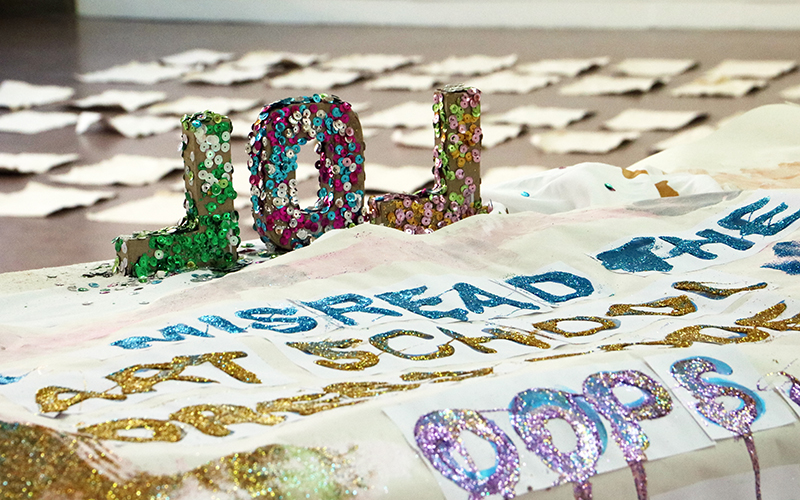
The Department of Culture, Communication and Media is committed to excellence in research and teaching in the areas of Art, Design and Museology, Academic writing, English education, Applied Linguistics, Music Education, Learning with Digital Technologies and teacher professional development.
Fees and funding
Fees for this course.
The tuition fees shown are for the year indicated above. Fees for subsequent years may increase or otherwise vary. Where the programme is offered on a flexible/modular basis, fees are charged pro-rata to the appropriate full-time Master's fee taken in an academic session. Further information on fee status, fee increases and the fee schedule can be viewed on the UCL Students website: ucl.ac.uk/students/fees .
Additional costs
Students should take into account any travel, accommodation and expenses involved in their thesis.
For more information on additional costs for prospective students please go to our estimated cost of essential expenditure at Accommodation and living costs .
Funding your studies
For a comprehensive list of the funding opportunities available at UCL, including funding relevant to your nationality, please visit the Scholarships and Funding webpage: https://www.ucl.ac.uk/scholarships/funding-students-postgraduate-research-courses
UCL's Research Excellence Scholarships (RES) are available annually to prospective and existing UCL research students from any country: https://www.ucl.ac.uk/scholarships/research-excellence-scholarship . The UCL, Bloomsbury and East London Doctoral Training Partnership offers studentships annually. More information is found here: https://ubel-dtp.ac.uk/
UBEL, RES and other funding programmes are not available to online and non-resident students.
For a comprehensive list of the funding opportunities available at UCL, including funding relevant to your nationality, please visit the Scholarships and Funding website .
After choosing a programme to apply for, you should develop a research proposal and identify a potential supervisor. For more information, visit our website to find a supervisor and get in touch with departmental graduate tutors.
Please note that you may submit applications for a maximum of two graduate programmes (or one application for the Law LLM) in any application cycle.
Choose your programme
Please read the Application Guidance before proceeding with your application.
Year of entry: 2024-2025
Got questions get in touch.

Culture, Communication and Media
UCL is regulated by the Office for Students .
Prospective Students Graduate
- Graduate degrees
- Taught degrees
- Taught Degrees
- Applying for Graduate Taught Study at UCL
- Research degrees
- Research Degrees
- Funded Research Opportunities
- Doctoral School
- Funded Doctoral Training Programmes
- Applying for Graduate Research Study at UCL
- Teacher training
- Teacher Training
- Early Years PGCE programmes
- Primary PGCE programmes
- Secondary PGCE programmes
- Further Education PGCE programme
- How to apply
- The IOE approach
- Teacher training in the heart of London
- Why choose UCL?
- Entrepreneurship
- Inspiring facilities and resources
- Careers and employability
- Your global alumni community
- Your wellbeing
- Postgraduate Students' Association
- Your life in London
- Accommodation
- Funding your Master's
Search NYU Steinhardt

Master of Arts Media, Culture, and Communication
The MA degree trains agile researchers to think critically from diverse perspectives about changing industries, technologies, and cultures. You will work closely with our diverse and renowned media studies faculty. Our research and curriculum foreground the study of global media and culture, digital media and new technologies, media history and theory, visual culture, race, and politics.
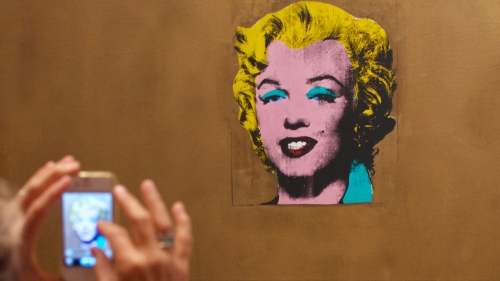
Degree Details
Official degree title.
Master of Arts in Media, Culture, and Communication
Your Academic Experience
Careers and alumni, is this program right for you.
While our department's graduate courses are primarily theoretical, the Media, Culture, and Communication curriculum is flexible, allowing electives from across the University to align with your personal academic and professional trajectories.
Media business at NYU Stern, media law at the NYU School of Law, interactive technology at NYU Tandon School of Engineering, and media ethnography in NYU Anthropology are just some of the many elective options made available to you. We also offer graduate study abroad courses in Europe, Asia, and Latin America examining media in comparative contexts.
Situated in the heart of Greenwich Village, we capitalize on New York's media and cultural eminence. With frequent guest lectures and public events, MCC serves as an intellectual hub for visiting scholars, artists, activists, and media experts.
Graduates of MCC's media studies master's build careers as astute analyzers of the global media landscape. Alumni find themselves well positioned for careers at the intersections of media, culture, and tech — ranging from research to creative, strategy to policy. Those who pursue doctoral study enroll in top-tier PhD programs.
- You'll benefit from the MCC Alumni Network as a student, and be part of this vast community after you graduate.
- Our active MCC Alumni Council will invite you to events throughout the year.
- As a student, you can apply to our MCC Alumni Mentor Program .
- And in our MCC Alumni Masterclass series, you'll learn from alums of the program about the industry applications of your intellectual studies.
The MA in Media, Culture, and Communication offers a theoretical foundation for examining global media within political, social, and cultural contexts. We do not provide practical training in media production, publicity or marketing. MCC MA students can use some of their electives to enroll in such classes elsewhere at NYU, but those seeking a purely practice-based degree should consider applying to the School of Professional Studies' MS in Integrated Marketing or MS in Public Relations , or Tisch's MA in Interactive Media .
Review our FAQs to learn more about our media studies degree program.

Areas of Study
The MA program offers five research areas, which operate as guiding frameworks for intellectual inquiry across the Department.

Frequently Asked Questions
Read answers to questions commonly asked by prospective students of the Media, Culture, and Communication MA program.

Student Experience
Learn about the MA graduate student community in the Department of Media, Culture, and Communication.

MCC Internship Program
Media, Culture, and Communication undergraduates of Junior or Senior standing and MA students are eligible to intern for credit. Search our internship database of available positions.

Media, Culture, and Communication faculty research and teach on media topics spanning the globe — from East and South Asia to Western Europe, the Americas, and Africa.

MCC Alumni Mentor Program
Our mentor program pairs Media, Culture, and Communication alumni with Seniors and MA students.
Review our FAQs . If you have additional questions, please contact us at [email protected] .

Media, Culture, and Communication
239 Greene Street, 8th floor New York, NY 10003 212-998-5191 | contact
Land Acknowledgement
Take the Next Step
Advance your personal and professional journey – apply to join our community of students.
Elaine S. Povich
Some colleges offer a 3-year bachelor's degrees to address student expenses and lower enrollment numbers
Connect with CI
- myPNW Login
- Brightspace Login
- PNW Calendar
- Scholarships
- Tuition and Fees
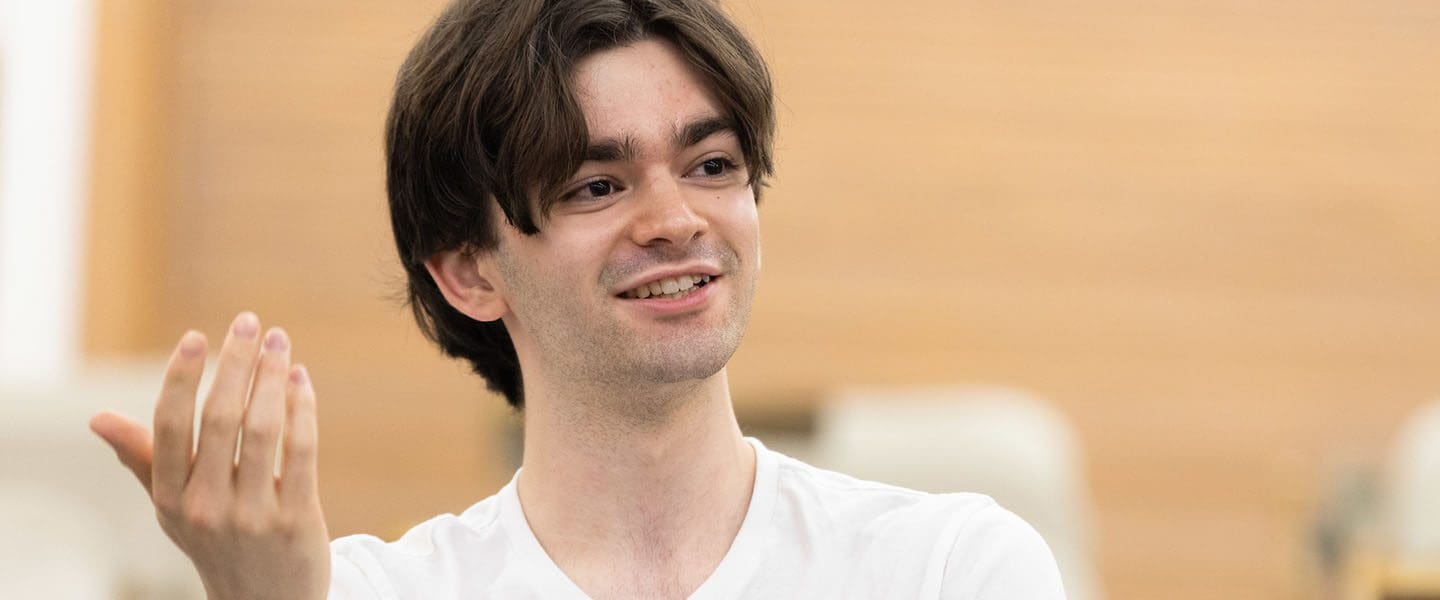
Bachelor's Degree in Communication
Concentration: Public Advocacy and Media Studies (BA)
Request Information
Public Advocacy and Media Studies Concentration Overview
Purdue University Northwet’s communication degree program with a concentration in public advocacy and media studies allows students to confront current public issues while studying the role of media and its impact on social change.
Department of Communication and Creative Arts
Why Study Public Advocacy and Change at PNW?
Journalism and Public Relations are the oldest communication professions and are the basis for almost all communication careers.
Journalistic ethics, methods of research and writing are essential skills, and public relations has the broadest application of those skills and commands the highest salaries and greatest career potential for business communicators.
Public Advocacy and Change Concentration Curriculum
As a public advocacy and media studies student, you’ll take a balance of general education courses, College of Humanities, Education and Social Sciences core courses and communication courses.
Introductory courses explore communication in business and society. Professional communication skills are developed in interviewing and writing for media courses. Junior and senior students can repeat the journalism practicum by taking on different roles at the student newspaper or by working with community organizations in the problems in public relations and advanced public relations courses.
Your journey begins with foundational courses in speech and news writing, as well as reporting, photography and PR.
Public Advocacy and Media Studies Concentration Course of Study
Sample Courses
- COM 11400 – Fundamentals of Speech Communication
- COM 20400 – Critical Perspectives on Communication
- COM 25000 – Mass Communication and Society
Explore broadcasting and media theories, hone your reporting techniques and learn to use social media in professional PR contexts.
- COM 25300 – Intro to Public Relations
- COM 30900 – Visual Communication
- COM 34800 – Public Relations and Social Media
Investigate advanced communications topics like persuasion, interviewing techniques and ethics. You may also complete an internship this year.
- COM 31800 – Principles of Persuasion
- COM 32500 – Interviewing: Principles and Practice
- COM 37000 – Writing for the Media
Your fourth year is a deep dive into practical applications of PR and journalistic principles. Work with actual clients to solve their problems while building your own portfolio. Round out your experience with ethics, writing for magazines and a practicum course.
- COM 35300 – Problems in Public Relations
- COM 45200 – Practicum in Journalism
- COM 46000 – Advanced Public Relations
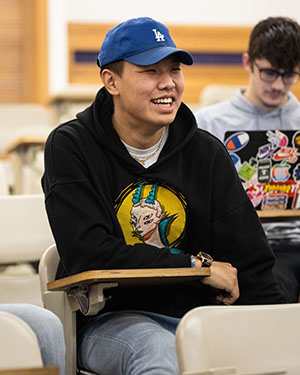
Public Advocacy and Change Concentration Highlights
This program features a unique opportunity to audit real clients’ communication strategies. You’ll gain hands-on experience that employers seek and graduate with a working portfolio that sets you apart in the marketplace.
Previous clients include BP, Nipsco, City of Portage, Indiana South Shore Convention and Visitors Authority, Griffith Police Department and many more.
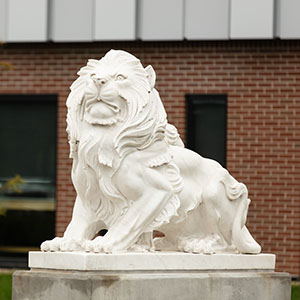
Public Advocacy and Change Concentration Outcomes
Our experiential courses give you the tools to be successful in any future career. Upon completing the program, you’ll have the tools and confidence to complete a professional portfolio filled with your own work. It’s an indispensable tool as you network with fellow professionals and go after your dream job.
Public Advocacy and Media Studies Concentration Career Paths
A public advocacy and media studies concentration from PNW prepares you for a number of careers in the field, including:
- Public relations specialist
- Crisis communication specialist
- Social media coordinator
- News reporter-editor
Public Advocacy and Media Studies Concentration Beyond the Classroom
You’ll have many opportunities to get involved in on- and off-campus activities, including:
- The Pioneer
See All Student Organizations
Public Advocacy and Media Studies Concentration Employers
Graduates of this program are employed in organizations and companies like:
- Boy Scouts of America
- Lamar Advertising
- Service Employees International Union
Public Advocacy and Media Studies Concentration Scholarships
In addition to the scholarships available to all PNW applicants, students seeking a public advocacy and media studies concentration may also apply for program-specific scholarship awards, such as:
- The Stephen Hough Memorial Scholarship is awarded to a Communication major with a concentration in public relations.
- Edwin F. and Elsie L. Buck Scholarship
- John R. Troyer Communication Scholarship
See All CHESS Scholarships
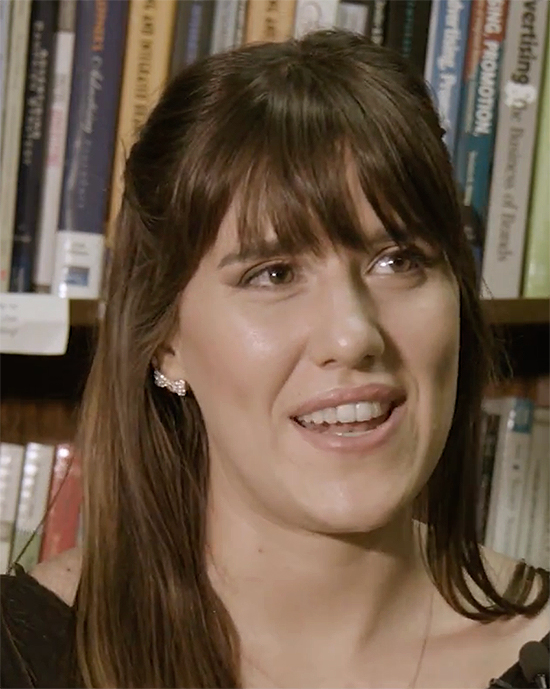
I have had the opportunity to actually build a portfolio that I’m able to take to employers. I have been able to network with alumni and professors who have really helped me along the way. I feel that I am leaving with such great experience. I’m ready to go out into the real world and get a job. Sara Komendat Communication, Concentration: Public Relations, 2018
Meet the Faculty
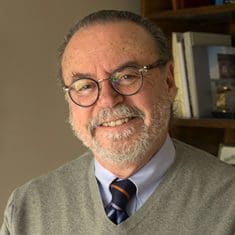
Thomas J. Roach, Ph.D.
Associate Professor of Communication
Thomas J. Roach teaches rhetorical theory and all courses in the PR concentration including journalism, interviewing and photography.
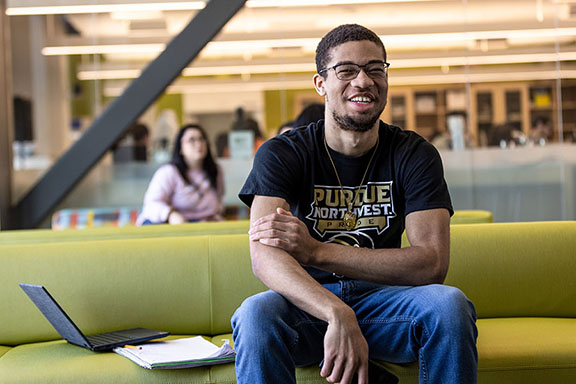
Earn a Bachelor's Degree in Communication with a Concentration in Public Advocacy and Change at PNW
Purdue University Northwest’s public relations and journalism concentration allows students to gain industry-relevant knowledge in a variety of fields through hands-on classes..
To see how a bachelor’s degree in communication with a concentration in public advocacy and media studies from PNW opens doors, from corporate boardrooms to non-profit leadership, take the next step today!
Request Info
Related Programs
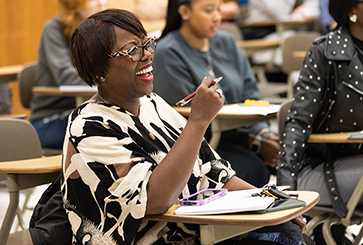
What Can I Do With a Communication Degree?
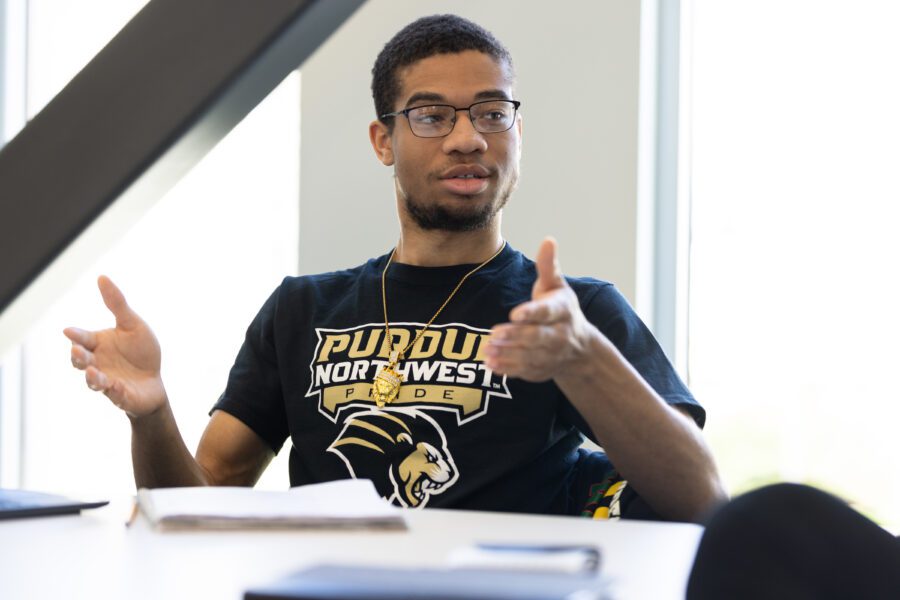
Communication Studies (Minor)
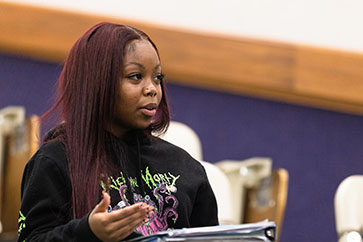
Communication: Strategic Communication

- Undergraduate Degrees
- Graduate Degrees
- Campus Life

Thiel College launches innovative new Communications Media major

GREENVILLE, Pa.-- Thiel College has launched a new Bachelor of Arts in Communications Media, a program designed to graduate skilled and ethical communicators equipped to navigate a media-saturated, diverse, and complex global environment.
- Read more about Thiel College’s Communications Media major .
The enhanced curriculum emphasizes integrated storytelling and media creation skills across written, visual, and oral communication, while also fostering critical thinking, research and leadership abilities. The new major prepares students to excel as communicators in a media-rich world. It will build skills and confidence in the traditional pillars of writing and speaking for careers. The new program unifies media production, journalism and interpersonal and mass communication techniques. Students will be able to create documentaries, write news articles and harness the power of story.
“The new communications media major will open career paths in advertising, marketing and social media as well as traditional and new media,” Vice President for Academic Affairs and Dean of the College Greg Q. Butcher, Ph.D. said. “Thiel’s program also sets a solid foundation for students planning for post-graduate studies. Our faculty members give students one-on-one attention and mentoring and students in the major will have access to industry-wide contacts through the College’s alumni network.”
Through the communications media program, Thiel students will be connected to the alumni network of experienced media professionals. Students have access to the state-of-the-art facilities in the James Pedas Communication Center, which includes a redesigned and modern television studio, new camera drones, a podcast studio and a radio broadcasting studio with advanced equipment. These facilities serve as a dynamic learning environment where students can create a digital media portfolio. They will also receive experience-based training that goes beyond what students learn in the classroom through internships and practicums.
Thiel also provides unique scholarship opportunities for its communication media majors including one with a connection to iconic children’s show host Fred Rogers H’69, who received an honorary degree from the College in 1969.
“The new communications media major at Thiel College is designed to prepare students for the constantly evolving and disparate media landscape. By integrating storytelling, critical thinking, and technical skills, we equip our graduates to excel in various industries, including broadcasting, advertising, and media production,” Assistant Professor of Communication and department chair Matthew Humphrey said. “Our alumni have found success in diverse fields, demonstrating the value and versatility of a communications degree from Thiel.”
Related Links
- Department of Media, Communication and Public Relations
- James Pedas Communication Center
Related Stories
- Thiel College recognizes Youngstown television journalist as a media mentor an annual event
- Thiel College community hears from producer of ‘The Wire’ as part of Pedas family visit
- Thiel College communication student wins Intercollegiate Broadcasting System award
- Four Thiel College students nominated for five Intercollegiate Broadcasting System awards
- Thiel College professor appears on CBS TV affiliate discussing Ukraine crisis
- Thiel communications students, faculty member nominated for national broadcasting awards
- Thiel College celebrating high school media teachers and Pittsburgh public radio figure
- Night of the Living Dead production team member and zombie speaks at Thiel College
- Thiel College student and professor appear on online film series discussing their work
- Youngstown TV journalist speaks to broadcasting class
- Junior Thiel College communication major wins national college broadcasting award
- Nine Thiel College students nominated for Intercollegiate Broadcasting System awards in New York
Office of Admission
- Request information about Thiel College
- Schedule a visit
- In the News
- Communications & Marketing
- Sports Information
Media Contact
Dominick DiRienzo Assistant Director of Communications and Marketing
[email protected] 724-589-2188
BROWSE BY CATEGORY
Academics ( 793 ) Admission ( 237 ) Alumni ( 332 ) Athletics ( 164 ) College Advancement ( 269 ) Community ( 450 ) Events ( 357 ) Faculty & Staff ( 620 ) In The News ( 38 ) Performing Arts ( 136 ) Students ( 833 )
BROWSE BY YEAR
2024 (87) 2023 (152) 2022 (150) 2021 (141) 2020 (146) 2019 (123) 2018 (157) 2017 (129) 2016 (119) 2015 (110) 2014 (52) 2013 (33) 2012 (41)

Thiel College 75 College Ave Greenville, PA 16125 1-800-248-4435
HIT Verison 2

- Visit the University of Nebraska–Lincoln
- Apply to the University of Nebraska–Lincoln
- Give to the University of Nebraska–Lincoln
Search Form
Graduate program awards 6 degrees at may commencement.
Six College of Journalism and Mass Communications graduate students received their master of arts degrees during the University of Nebraska-Lincoln’s graduate commencement on May 17, 2024 at Pinnacle Bank Arena.
CoJMC offers a comprehensive master's program in journalism and mass communications, with specializations in integrated media and communications and professional journalism. The 36 credit-hour program aims to enhance students' professional skills and knowledge, enabling them to advance in their careers.
The following is a list of CoJMC’s May 2024 master of arts graduates, listed alphabetically by last name with their hometown:
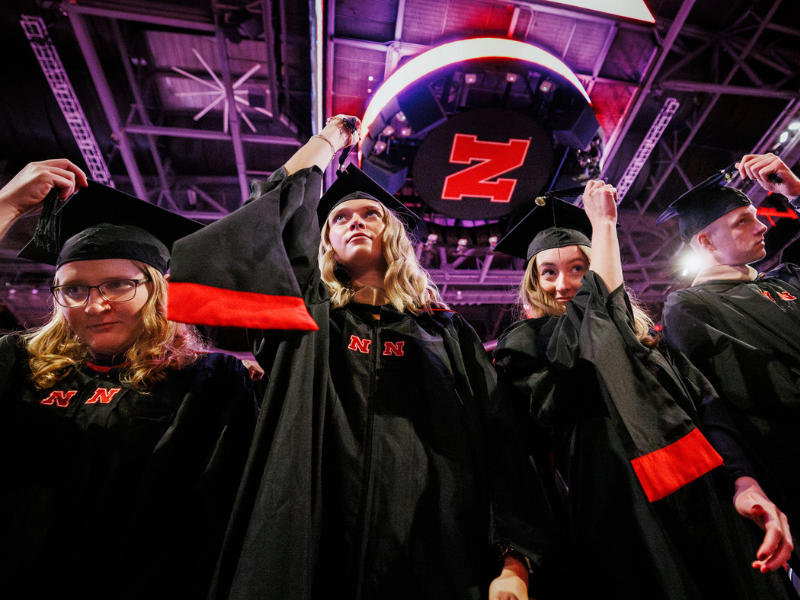

IMAGES
VIDEO
COMMENTS
The Doctor of Philosophy degree in Communications offers a multidisciplinary approach to the study of the relationships between people and media in their cultural, social, political, historical, economic and technological contexts. With the guidance of an interdisciplinary faculty advisory committee, students craft i ndividual courses of study ...
The 48-credit Doctor of Philosophy in Media and Communication is held on Temple's Main Campus, and can be completed over four years of continuous, full-time study. The following courses are required. The program also requires the completion of preliminary examinations and a doctoral dissertation.
The doctoral degree (PhD) program in Communication, Culture and Media offers students the opportunity to become experts in a variety of compelling topics, such as: Political communication (especially war and conflict) Media treatment of immigration and immigrants. Consumer culture and culture change under commodification of the self.
The PhD program in Media, Culture, and Communication is committed to interdisciplinary, theoretically sophisticated, multi-methodological, historical, and comparative approaches to the study of media and culture. Five research areas operate as guiding frameworks for intellectual inquiry across the department: Global Communication and Media ...
Xiaochang Li (PhD 2017) Xiaochang is an Assistant Professor in the Department of Communication at Stanford University. Her teaching and research interests include the history of computing and information systems, AI and algorithmic culture, speech and language technology, and software/platform studies. Before joining Stanford, she was a ...
School of Journalism and Communication. 1275 University of Oregon. Eugene, OR 97403. P: 541-346-3738. F: 541-346-0682. 70 NW Couch Street. Portland, OR 97209. P: 503-412-3662. Earn a communications and media studies PhD while conducting groundbreaking research alongside top communication and media studies experts at the SOJC.
In 2021, QS World University Rankings named USC Annenberg among the foremost schools for studying communication and media in the world. 15. doctoral candidates in our 2021 cohort Our small cohorts create an intimate group of contemporary researchers with whom to study. 40%. of students are international About half of our 2021 PhD cohort is ...
Chris Vargo '14 - Assistant Professor of Big Data and Analytics at the College of Media, Communication & Information; University of Colorado Boulder . Why Carolina? Get access to world-class resources on campus and a worldwide network of more than 16,000 UNC Hussman alumni. ... Or contact the Graduate Studies team at [email protected] or (919) 843 ...
Theory and Research Ph.D. The Ph.D. program prepares students to conduct original research on communication processes, their origins, and their psychological, political and cultural effects. Most of our doctoral graduates enter academic teaching and research careers, or communication-related professions that require research skills.
Founded through the generosity and vision of publisher, diplomat, and philanthropist Walter Annenberg, the Annenberg School for Communication is devoted to furthering our understanding of the role of communication in public life through research, education, and service. Our five-year doctoral program has a strong reputation as one of the best ...
Graduate Students. Welcome to the Ph.D. program in Communication and Media at the University of Michigan, a top department at a great university. The key attractions of our program are: The opportunity to work closely with world-renowned faculty to develop your own line of research, starting in your first year. An interdisciplinary program that ...
The Doctor of Philosophy in Rhetoric, Media, and Publics is replacing the PhD in Communication Studies (Rhetoric and Public Culture). Rhetoric, Media, and Publics is an interschool program between the School of Communication, Weinberg College of Arts and Sciences, and the Medill School of Journalism, Media & Integrated Marketing Communications; and it is based in
The Ph.D. program in Communication, Information, and Media provides doctoral training in theoretical and research skills for scholarly and professional leadership in the fields of communication, library and information science, and media studies.
The ICR has one of the most renowned communications Ph.D. programs in the world. Students in the program study such topics as media economics, organization and structure; media policy; political economy of the media; new technologies and new media; telecommunications; advertising and consumer research; journalism studies; media ethics; media and communications history; social and cultural ...
2024 Media, Culture, and Communication Graduate Ray Sun's Journey, from COVID Care to Law School. Ray Sun (BS '24, Media, Culture, and Communication) shares how he supported fellow students during COVID, gave back as a peer mentor, and discovered his post-undergraduate path to law school.
The Hugh Downs School of Human Communication offers a transdisciplinary graduate program leading to the PhD in communication. This program provides coursework and resources in critical-cultural communication and rhetoric, health communication, intercultural communication, interpersonal communication, organizational communication and performance ...
Stanford's Department of Communication focuses on media in all its forms. The department studies the processes and effects of mass communication: the nature and social role of the various media; their structure, function, and ethics; and their impact on the political system, culture, and society. In this context, it considers not only ...
Modern Culture and Media. The Ph.D. program prepares students to engage in rigorous and innovative scholarship and teaching in the theory, history and critical analysis of one or more media in ways that encompass diverse cultural contexts and historical periods. The Department of Modern Culture and Media is committed to the study of media in ...
Request Info. The Boston University PhD program in Emerging Media Studies is the nation's first doctorate program in emerging media and its critical, daily role in modern life. COM's unique program prepares its doctoral students to become sophisticated researchers and critical thinkers who are ready to advance the fields of communication ...
The Ph.D. in Strategic Communication offers advanced instruction in health communication, instructional emergency risk communication, and crisis communication; it also prepares students with the necessary knowledge and skills to pursue a successful, advanced career in communication and related fields in both academic and applied settings.
Within our Ph.D. in Strategic Media, you will take courses in 4 major areas: advanced core, research, application, and dissertation courses. The advanced core courses are designed to help you ...
The MPhil/PhD programme provides a route for you carry out a piece of research that will make a distinctive contribution to knowledge in the fields of education, culture and communication. You will work closely with your supervisor(s) to develop your project, supported by a flexible programme of methodology courses and a strong research community of staff and doctoral
While our department's graduate courses are primarily theoretical, the Media, Culture, and Communication curriculum is flexible, allowing electives from across the University to align with your personal academic and professional trajectories.. Media business at NYU Stern, media law at the NYU School of Law, interactive technology at NYU Tandon School of Engineering, and media ethnography in ...
Being in the Strategic Communication PhD program at UCF has taught me many things. The obvious, of course, is theory building, writing academic research papers, quantitative and qualitative research methods and preparing and writing a dissertation. ... Nicholson School of Communication and Media. Like us on Facebook Follow us on X Find us on ...
School of Journalism and Media; Graduate Program in Communication; Intercollegiate Debate; Student Media; Hire CI; Diversity, Equity and Inclusion. Welcome; CI Diversity Plan; DEI Committee; DEI Events; ... College of Communication and Information. Address 308 Lucille Little Library Lexington, KY 40506-0224. Get Directions. Contact (859) 218-0290
UFCJC, regarded by its peers as one of the top programs in the country, offers an online Master's in Mass Communication degree with seven concentrations — Digital Journalism and Multimedia Storytelling, Digital Strategy, Global Strategic Communication, Public Interest Communications, Public Relations, Social Media and Web Design — and ...
Media Contact: Sydney Trainor | Communications and Media Relations Specialist | 405-744-9782 | [email protected]. Dr. Holly Karibo, an associate professor and director of graduate studies in Oklahoma State University's Department of History, has been selected as a 2024-25 Fulbright Canada Research Chair in Comparative Canada-U.S ...
Professional communication skills are developed in interviewing and writing for media courses. Junior and senior students can repeat the journalism practicum by taking on different roles at the student newspaper or by working with community organizations in the problems in public relations and advanced public relations courses.
Posted June 04, 2024 Print. GREENVILLE, Pa.-- Thiel College has launched a new Bachelor of Arts in Communications Media, a program designed to graduate skilled and ethical communicators equipped to navigate a media-saturated, diverse, and complex global environment. . The enhanced curriculum emphasizes integrated storytelling and media creation ...
Six College of Journalism and Mass Communications graduate students received their master of arts degrees during the University of Nebraska-Lincoln's graduate commencement on May 17, 2024 at Pinnacle Bank Arena. CoJMC offers a comprehensive master's program in journalism and mass communications, with specializations in integrated media and communications and professional